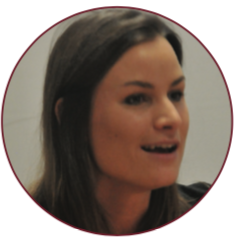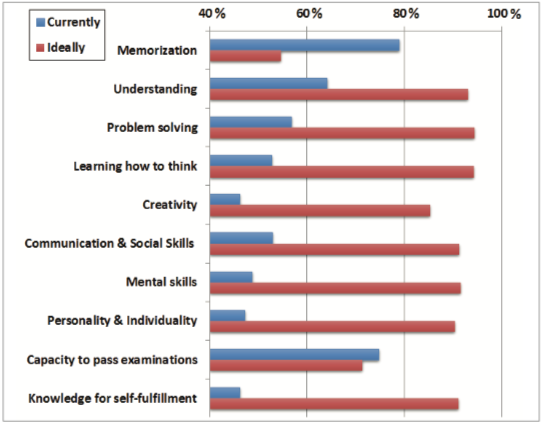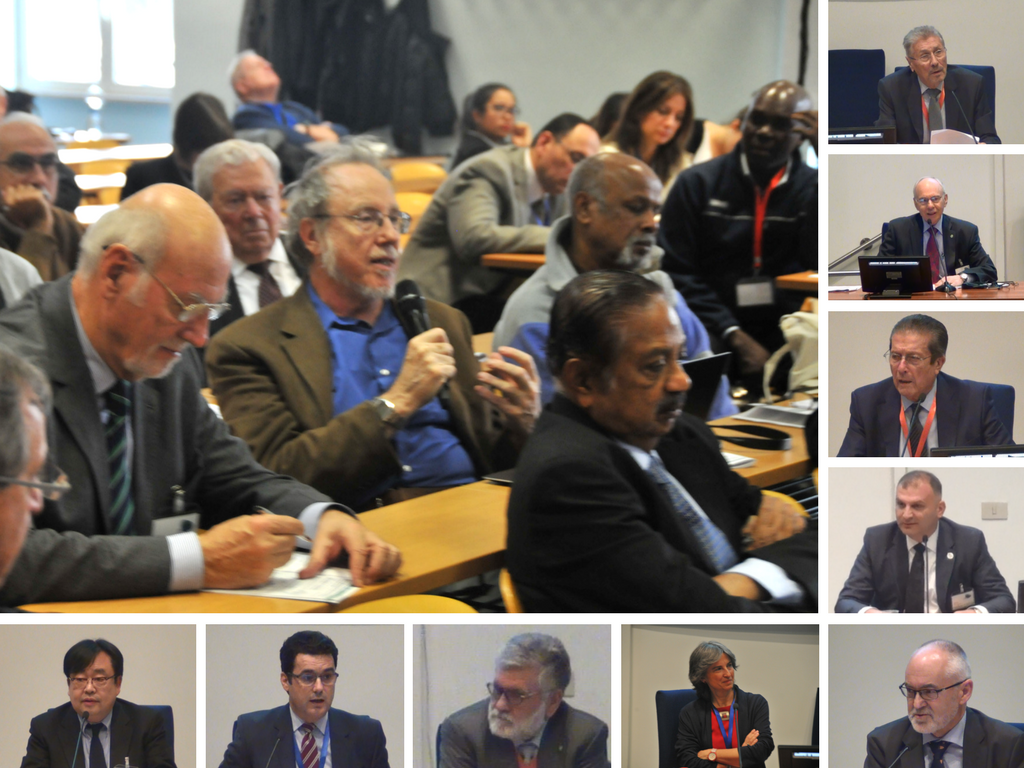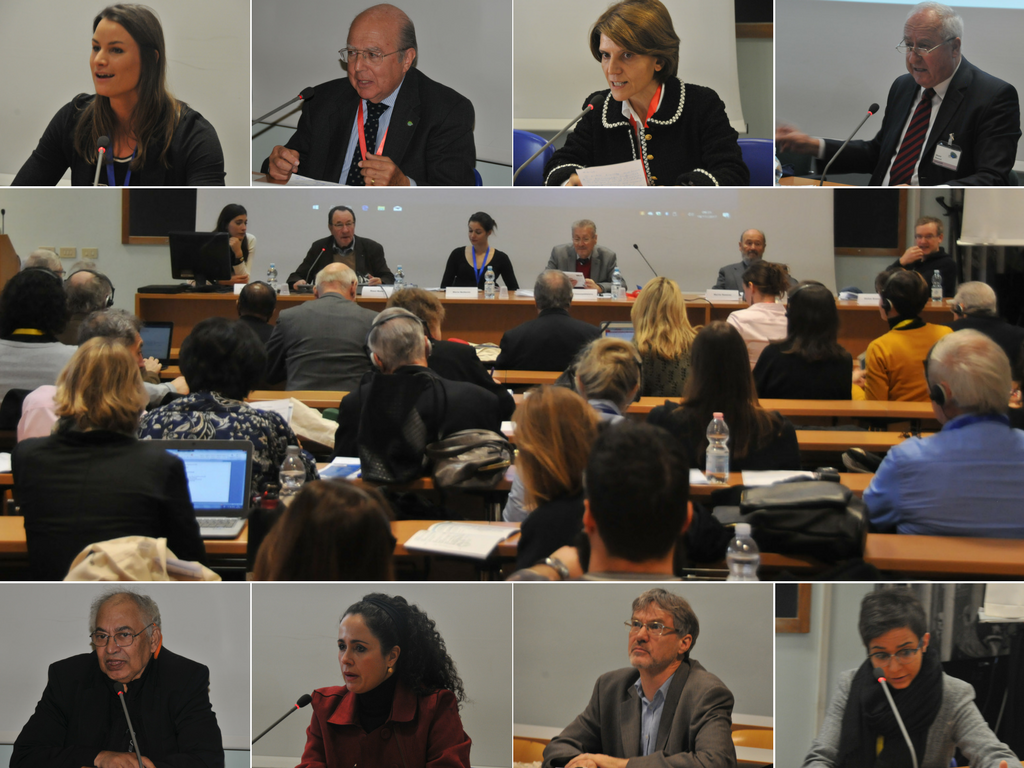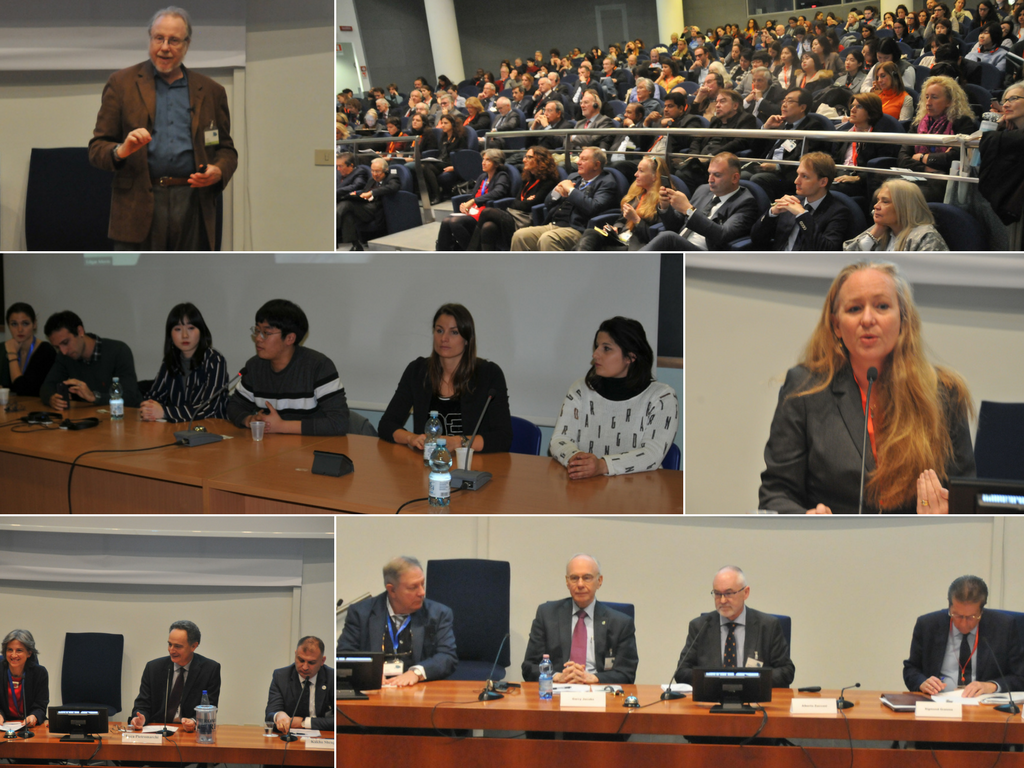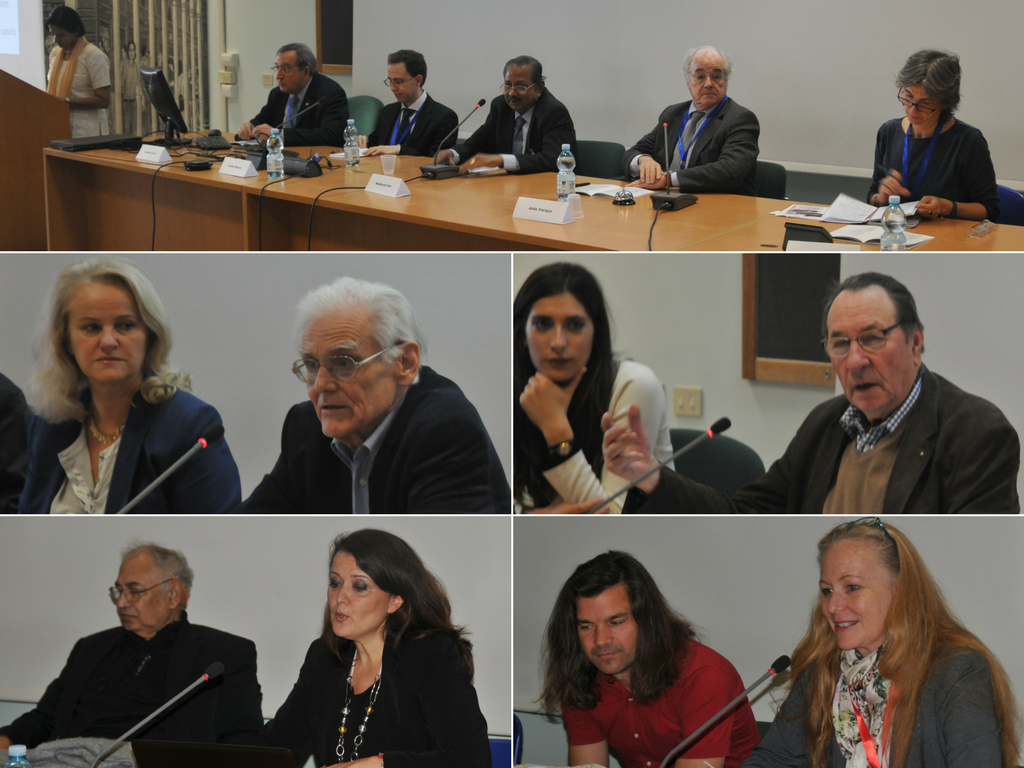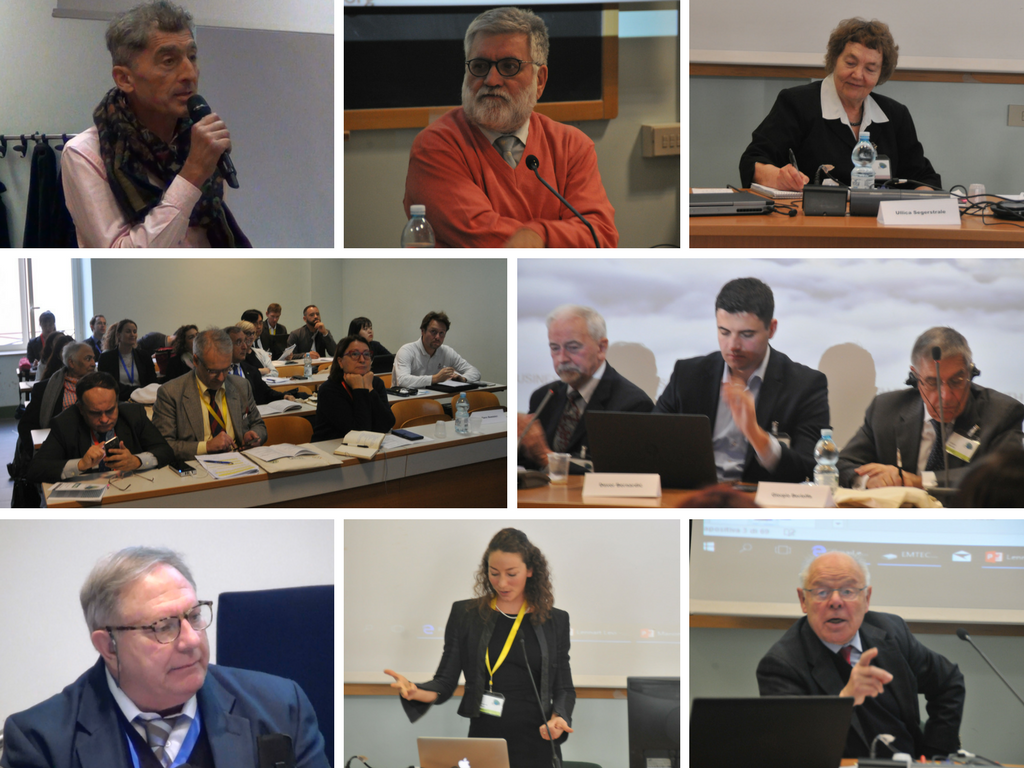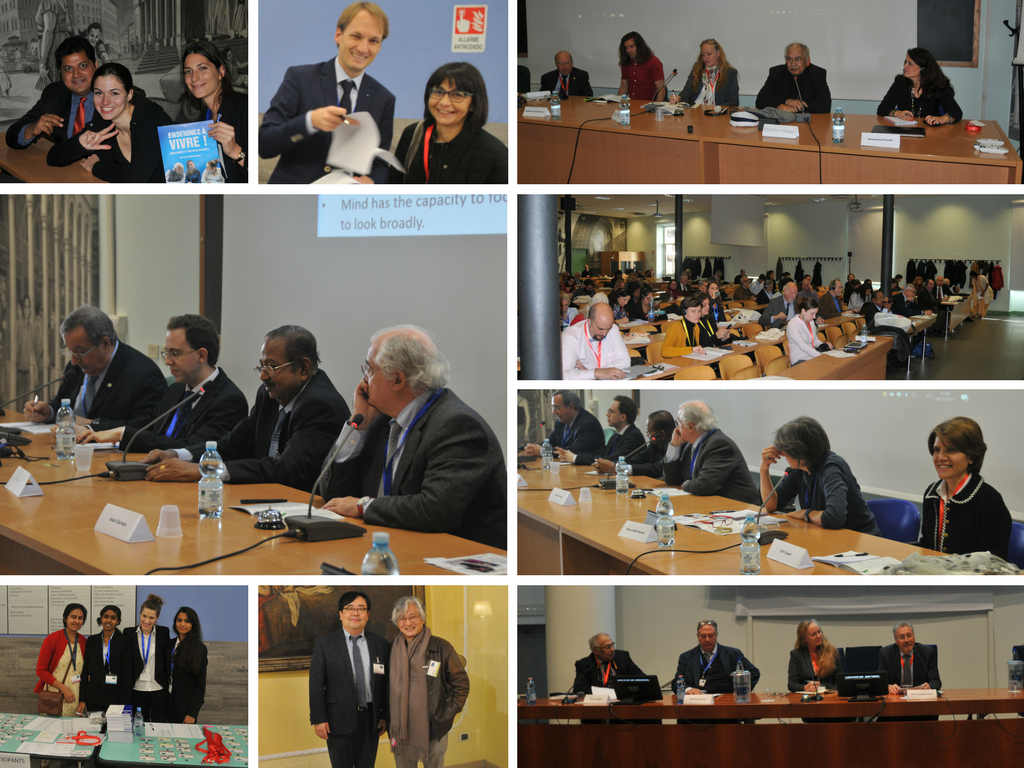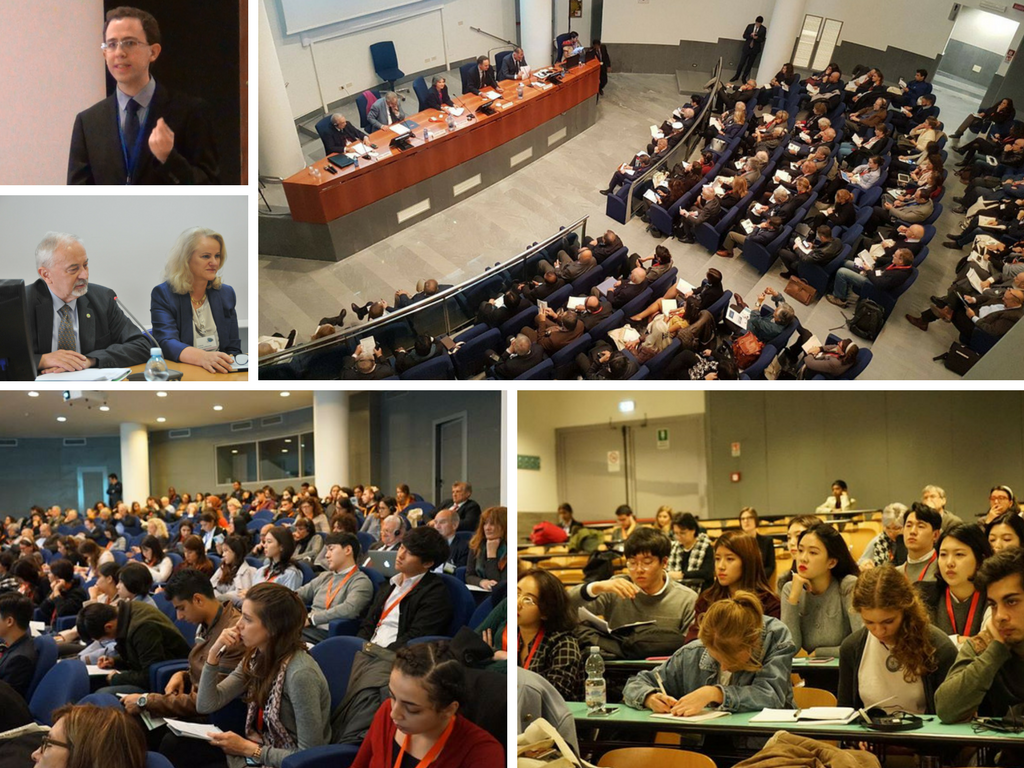2nd International Conference on Future Education
Report on the Conference | Presentation videos | Compiled conference papers
Individual conference papers | List of speakers | Conference agenda
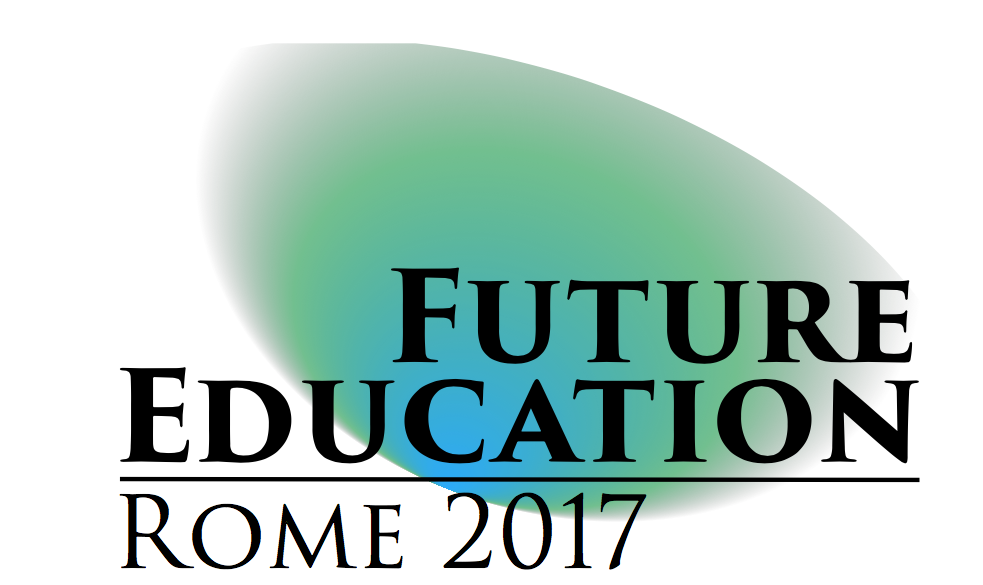 |
2nd Intl. Conference on Future EducationEffective Learning in an Age of Increasing Speed, Complexity and UncertaintyRome, Italy | November 16-18, 2017 |
Organizers
Co-Organizers
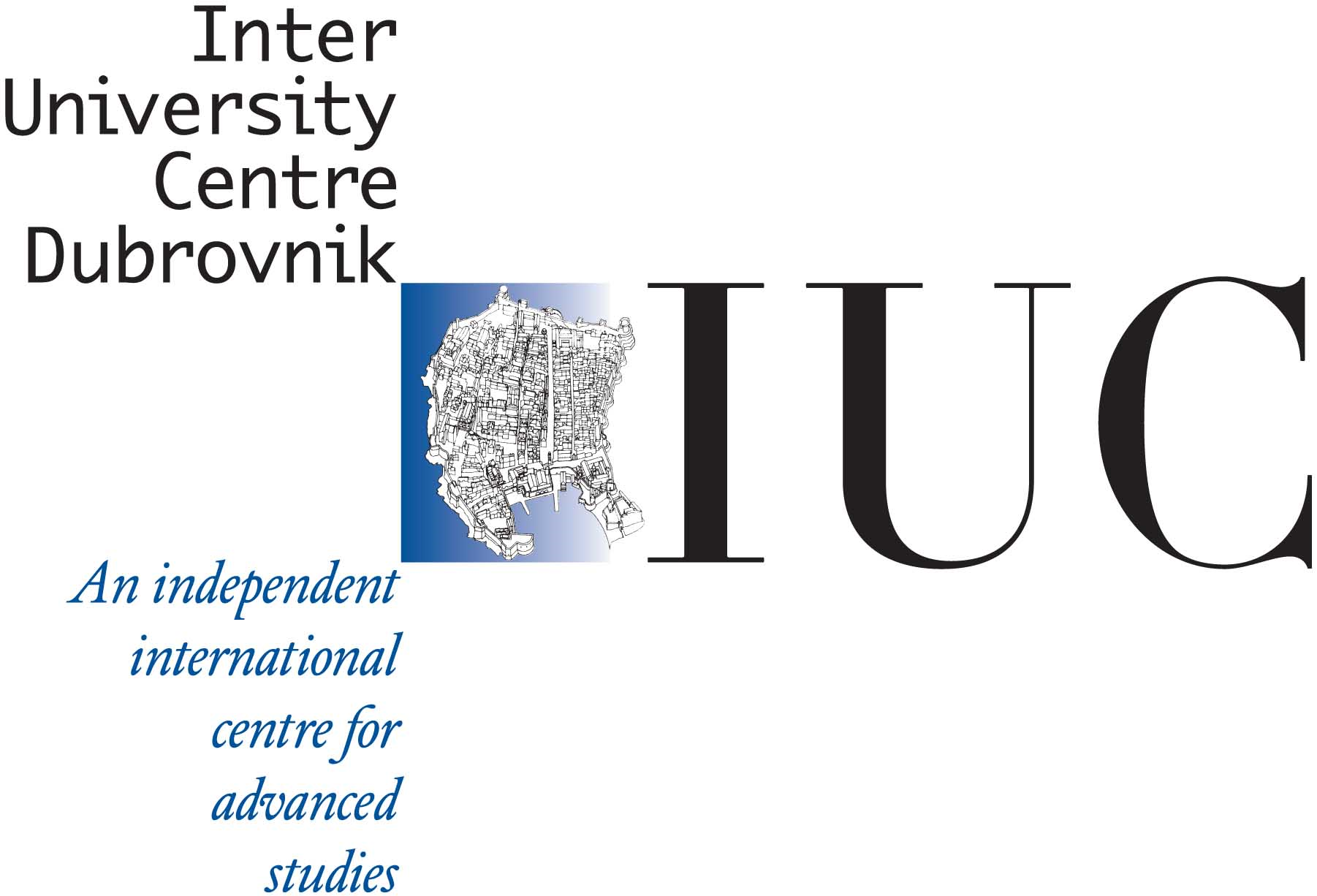 |
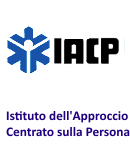 |
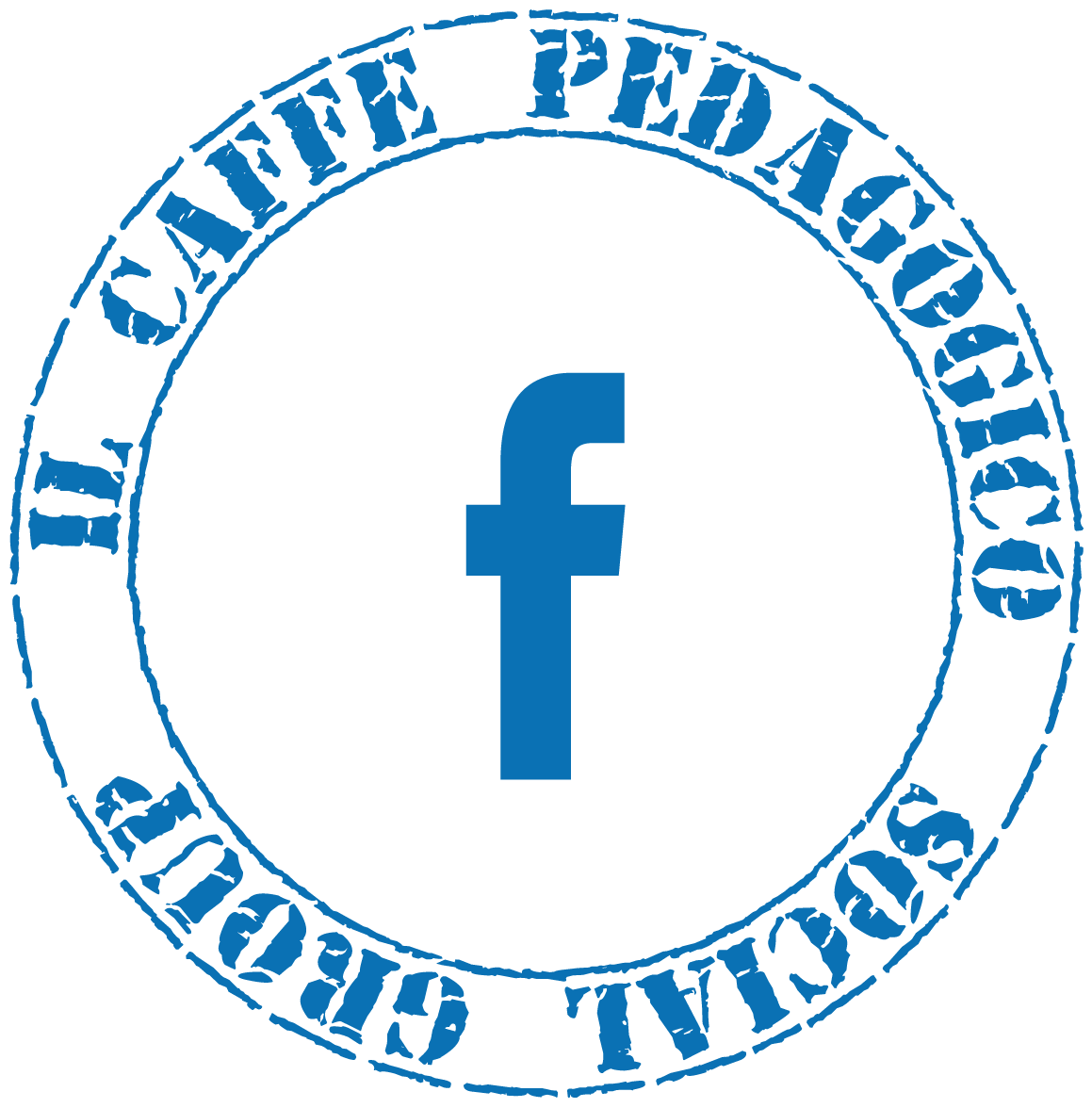 |
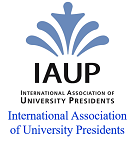 |
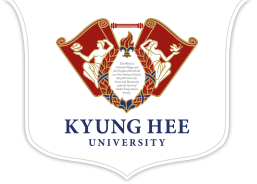 |
 |
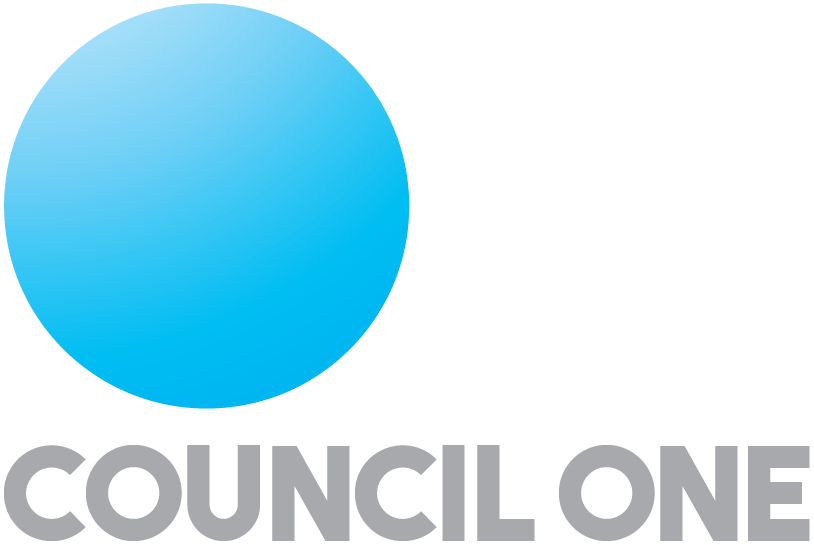 |
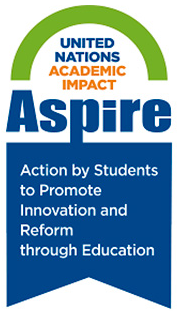 |
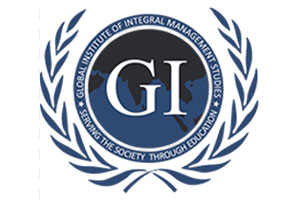 |
Building on a break-through conference at University of the California at Berkeley in 2013, the World University Consortium, the World Academy of Art & Science and Roma Tre University collaborated to conduct an international conference on Future Education to identify practical measures to meet the needs and aspirations of major stakeholders — youth, students, teachers, employers, workers, research institutions, governments and civil society.
The Challenge
Society is changing more rapidly than ever before, generating unprecedented opportunities and challenges in its wake. Anticipating and addressing the consequences of the Fourth Industrial Revolution, environmental pressures, rising levels of youth unemployment and inequality, globalization and virtualization of business models, the explosive growth of online communications and education, the globalization of education, increasing intercultural contacts and migration will place enormous pressure on educational institutions, students, teachers and researchers.
The Solution
Education is humanity’s most effective instrument for consciously steering social evolution to maximize the benefits and minimize the disruption and trauma associated with it. There is an urgent need for expanding the reach, accessibility, affordability and quality of education at all levels. But multiplying the existing model is not sufficient. Indeed it is likely to aggravate rather than alleviate many problems due to the time warp and gap between the education offered today and that which is so urgently needed. We need not only much more education but education that is qualitatively different — a new paradigm. Updating course content is not enough. We need an education that equips youth to adapt to future innovations and challenges that cannot be anticipated now.
THE OBJECTIVES:
- Implement student-centered, person-centered, active, participative learning pedagogies;
- Harness the potential of emerging learning technologies and delivery systems;
- Foster synthetic, integrated modes of thinking;
- Make conscious and explicit the central role of values in human development;
- Shift toward multi- and trans-disciplinary approaches to knowledge;
- Develop mental capacities for independent thinking, creativity, entrepreneurship & leadership;
- Extend the scope of learning outcomes from information and mental skills to encompass development of social capabilities, personality, values and individuality.
The Format
This conference was designed to serve as an open, active platform for participants to share, collaborate and co-create new ideas, approaches, methodologies and best practices. The multi-stakeholder approach and structure of the conference made it possible for participants to organize or participate in special sessions dedicated to in-depth exploration of specific topics ranging from subject content, pedagogy and learning technologies to social and economic impact on issues such as employment, skills development, business development, innovation, social power, citizenship, cultural diversity, personal development and individuality.
Click here to download the PDF version of the Report


 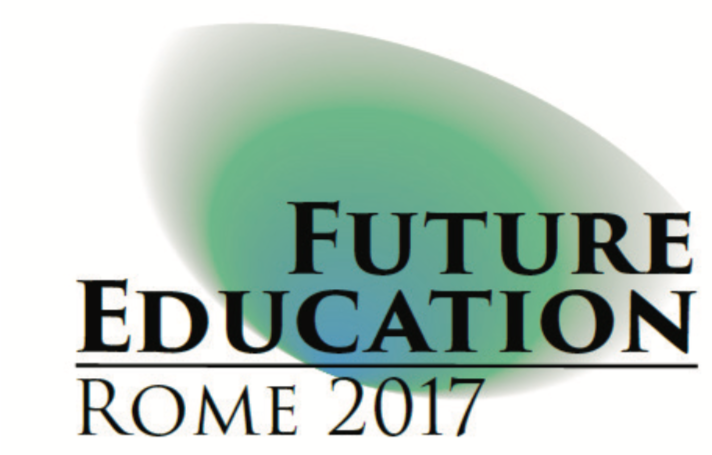
Each one of us today has more information accessible on our cell phones than was available to all of humanity in earlier times. Yet, our education system still largely follows the model introduced at the University of Bologna in 1088, at a time when all knowledge was in the possession of a very small number of scholars, transfer of information could only be done through oral lectures, and books were hand-written and so rare that they were kept chained to library shelves. The 2nd international conference on Future Education, held in Rome on November 16-18, 2017, recognized the need for a radical paradigm shift in the way we teach and learn in order to meet the multi-dimensional challenges confronting global society in the 21st century. It concluded that a massive quantitative extension and a radical qualitative shift in education are indispensable. In conferences spanning the last five years, the World Academy of Art & Science has been repeatedly been asking the same critical question, “If you want to create an accessible, affordable, relevant and world class system of higher education open to all human |
Effective Learning in an Age of Increasing Speed, Complexity and Uncertainty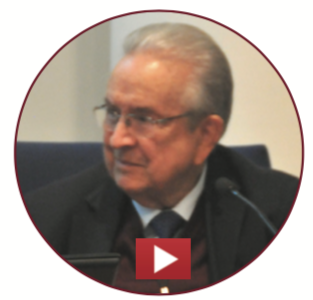
A new paradigm is urgently needed to shift emphasis to student-centered, active, collaborative learning, critical andoriginal thinking and creativity, and knowledge that is value-based, multidisciplinary, contextual and integrated. – Heitor Gurgulino de Souza beings, how would you do it?” The founding of the World University Consortium in 2013 marked a milestone in a long search for effective answers to this question. The Rome Conference is the second in the series which began in October 2013 at University of California at Berkeley. More than 300 speakers and participants came together in Rome to discuss important questions, formulate conclusions and practical recommendations designed to transform the educational system to enhance its reach, accessibility, quality, relevance and employability to meet human needs, fully develop human potential, and prepare today’s youth for the challenges and opportunities of tomorrow. The Rome Conference was organized by WAAS, WUC and Roma Tre University in collaboration with the International Association of University Presidents, Kyung Hee University (Korea), Person-Centered Approach Institute (Italy), The Mother’s Service Society and Global Institute for Integral Management Studies (India), Inter-University Centre (Croatia), and others. |
||
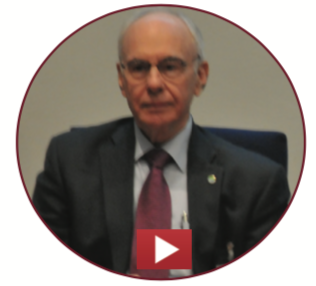
The essence of education is knowledge of human accomplishment in every sphere of life, the essence of what is needed to be productive, successful, secure, content, healthy, responsible human beings building effective, responsible, harmonious sustainable societies. – Garry Jacobs |
|||
|
The uniqueness of this multi-stakeholder conference lay in the fact that it brought together eminent thinkers, researchers, university administrators, professors of education and other disciplines with representatives from the business community, labor unions, international NGOs and government. It also included large groups |
of students from Roma Tre University and Kyung Hee University in Seoul representing the voice of the future. Students are the consumers and beneficiaries of the educational system, whose future lives would be powerfully affected by the type and speed of evolution in the global educational system. |
||
Contours of the Needed Paradigm Shift in Education
|
|||
Contextual, Relational, Human-Centered Knowledge |
|||
Education to meet Societal NeedsThe functionalities of the school are individualistically competitive, teacher-centric, curriculum-centric, passive, contextless and focused only on teaching technical skills like basic literacy and numeracy. These defining features of schools are imprints of the industrial age. This is irrelevant to the life of the children and the community they live in. It is at odds with the reality and results in disengaged teachers and students. We must also take the standpoint of the society to understand the problems generated by the present system. |
|||
Next Steps |
|||
|
The conference generated a significant number of important conclusions and recommendations for consideration by educational institutions, governments, businesses and civil society. It also identified many questions that need still to be seriously considered and researched in order to arrive at satisfactory answers in the form of solutions, policies, strategies and methods for application. The Future Education Conference in Rome is best conceived as a step—an important meaningful step—in a wider process to establish a global educational system that can provide accessible, |
affordable, relevant and quality education to all. Future work has to move from conception to implementation, from leadership in thought to effective action. The next immediate step will be publication of the conference papers in both electronic and print format in both English and Italian. Already WAAS-WUC have received invitations to conduct four additional conferences in Latin America, Eastern Europe and Central Asia to further the translation of its recommendations from theoretical conception into practical action. |
||
Understanding Complexity
Research has developed as a way of pulling things out of context, studying them in detail and getting wonderful knowledge. The problem is that we do not know how to put them back together and we do not know how to to develop relational information that reflects the interdependency of the different aspects of our knowledge. Without that information, we are not able to understand or respond appropriately to the complexity of the world we live in. We need to create a context for contexts. Education has to provide another place in which we can inquire, explore, discover and share insights across generations about how the contextual process takes place. – Nora Bateson |
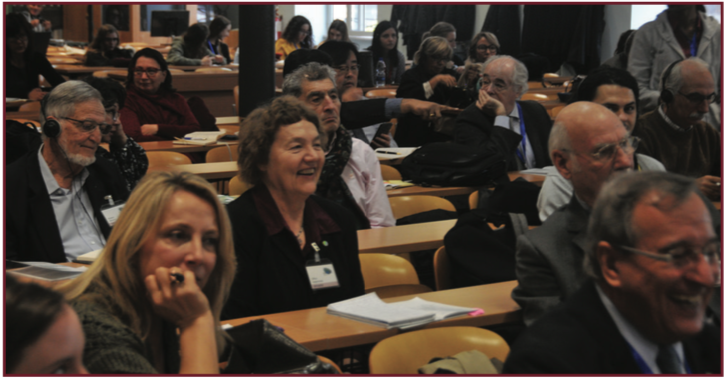
Joy of Learning
– Emil Constantinescu |
||
Educating for the Unknown |
|||
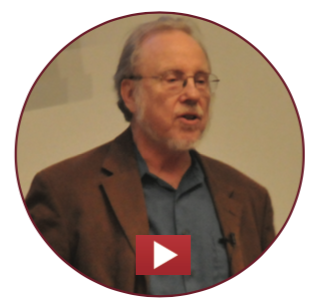
What is worth learning? What informs, empowers and enlightens learners? Literacy and numeracy are essential, but beyond that, what kind of learning will matter in the lives that learners are likely to live? There is no one right answer to the question. We live in an amazingly well connected world, which brings a profound level of complexity and uncertainty into our lives. The |
small world paradox is that as our collective world gets smaller, the worlds we individually engage become more numerous and complex. So what learning matters to children who grow up in this kind of world?
If a theme can meet these four criteria, then it is worth learning. We need to construct frameworks to work in, feel our way forward smartly, and face the challenge of educating for the unknown, so that we give our youth an education that truly prepares and energizes them. – David Perkins |
||
Active Learning |
|||
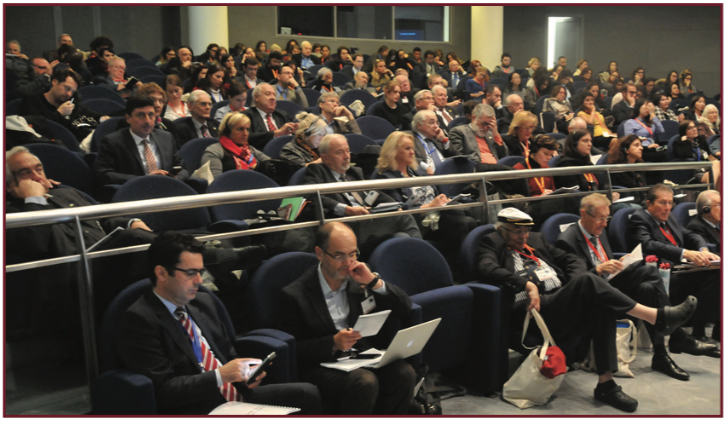
|
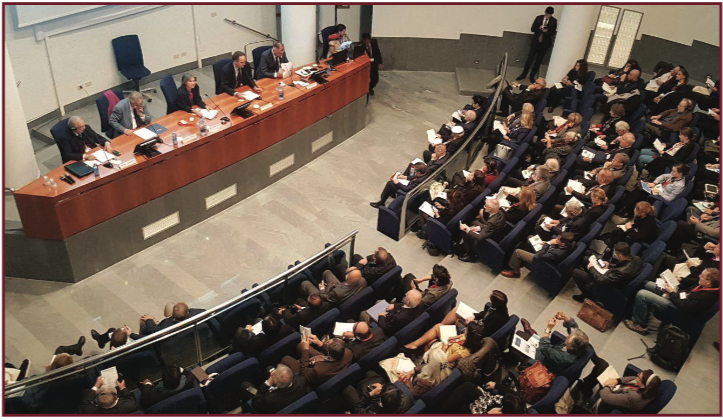
|
||
Education for Full Employment in the 4th Industrial Revolution |
|||
|
How can education equip youth for knowledge and skills needed for jobs that do not even exist today? This question represents a major challenge to business, students and educational institutions. The increasing speed of technological innovation and application is widening the gap between education and employment. Companies around the world complain of a growing shortage of employable skills. 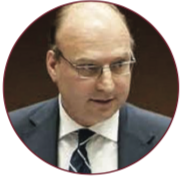
The onset of the 4th Industrial Revolution is generating demand for new types of technical skills. Numerous studies project drastic changes in employment markets, giving rise to many new types of jobs that do not even exist today. Many are calling for a dramatic increase in the place of digital technologies at all levels of the curriculum. But this alone will not solve the problem. – Luigi PerissichDirector-General, Confindustria Innovative & Companies are also reporting that technology-related knowledge and skills are not sufficient for employment in the emerging job market. Businesses are also looking to recruit individuals with strong communication and interpersonal skills, the capacity to collaborate and work in teams, problem-solving and decision-making capabilities, and who know how to keep learning—skills that all too often are not being developed through current educational curriculum. Moreover, in an age of rapid change, the capacity for innovation and creativity have become critically important. The process of learning and discovery becomes more important than the content that is taught. Students need to learn how to think out of the box, to question underlying assumptions, to prevailing challenge conceptual systems, to integrate and unite apparently unrelated and contra- |
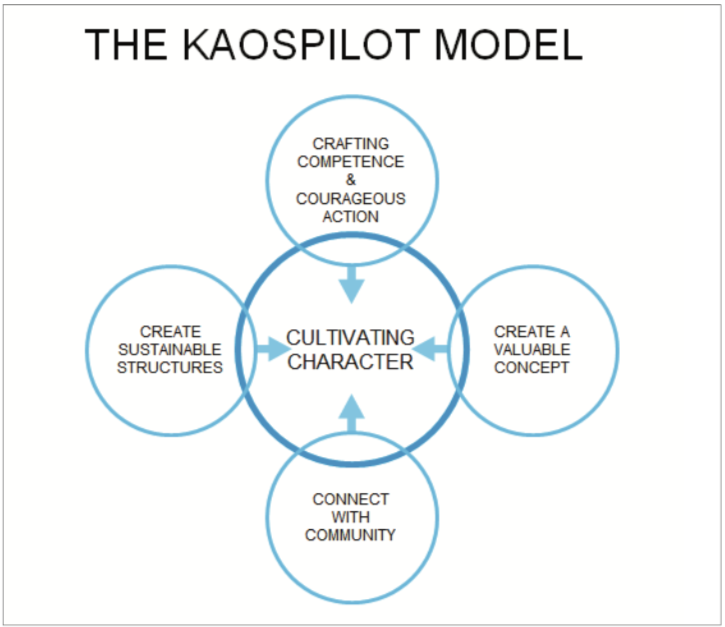
-dictory phenomena. Finally, leadership skills are needed both for those seeking to found new businesses and those who want to rise to managerial positions within existing companies. Changing needs of the job market pose serious challenges to individuals and societies. Those that respond most effectively to these challenges will be the economic leaders of the 21st century. 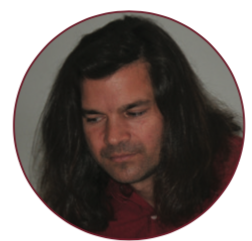
Our goal should be to an education that fosters creative leaders, social innovators, responsible entrepreneurs and community builders by supporting the students in making sense of their journey and realizing opportunities and potential. – Matthias Straub-Fischer |
||
Transdisciplinarity to Address Complex Real World Problems |
|||
|
|||
Creativity in Science and Technology |
|||
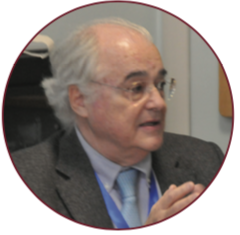
Science is no longer geared to look at laws of nature and encourage curiosity, but science is focused on knowledge that can be turned to product or services. Technoscience has become the main vector of economic growth and wealth accumulation. All the grand challenges we face today, from climate change to sustainable living, are complex by nature. Complexity is the impossibility of separating a system from its context, a living being from its environment, and an object from its measuring instrument. Only a curious mind can gain insights on complexity in its entirety. Curiosity is the seed of critical thought, culture of doing and the spirit of enterprise. – João Caraça |
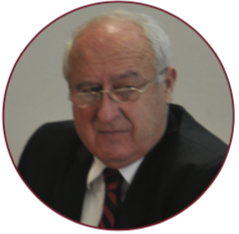
In providing global public goods, science, technology, education and innovation serve as a crucial driver for rising prosperity and improving national competitiveness. Innovation and technology are needed to transform countries from reliance on the exploitation of natural resources to technological innovation as the basis for development. Many of tomorrow’s professional fields are not known today, and are even hard to predict. Fundamental solutions for the higher education sector need to be developed to ensure that students acquire the capacity for continuous self-education throughout their careers. Future education needs to emphasize the importance of adaptability, flexibility, creativity, curiosity and lifelong learning. – Momir Djurovic |
||
Active Collaborative Learning |
|||
|
When the television was first introduced, TV news programs were much like radio news programs had been before, a news reader read the news, only this time viewers could see the reader apart from hearing him or her. It took decades before photos, charts, tickers, visuals from the spot of action and interviews were introduced, leveraging the potential that the new medium made possible. Similarly, our education today still follows the thousand-year-old lecture model that developed at a time when knowledge was possessed by a very small number of scholars. Anyone who wanted to learn had to listen to the scholar speak. Today, we have access to all the information humanity has ever created in the palm of our hands, in our phones. But we largely continue to use the teacher as the source of information and the time spent in class for transfer of information. Audio and visual material, the internet and virtual reality offer a much more powerful and effective learning experience. Easy access to unlimited information makes it possible to get the facts on one’s own, so that time spent in the classroom can be much more effectively utilized for inquiry, discussion, and peer learning. The Cone of Experience developed by American educator Edgar Dale, depicts the relative concreteness of various forms of learning experiences. It shows that text and verbal symbols employed by the traditional learning method are abstract, whereas the use of photos, audio, video, models and direct experiences make for more concrete learning experiences. A demonstration, dramatized presentation or practical work can dramatically increase the effectiveness of learning and retention. The impact of active learning where the student is an active participant in the learning |
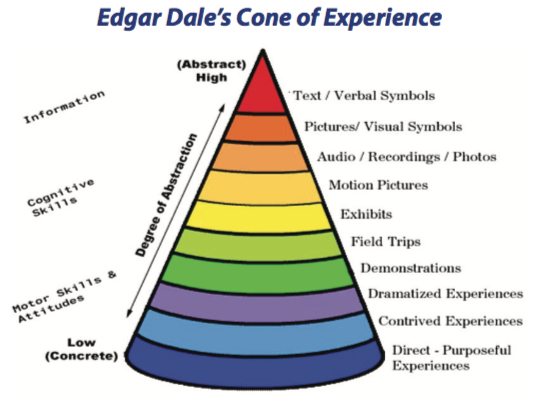
process is seen even in online education. MOOCs that offer discussion forums, group activities, peer learning and a high level of interactivity achieve far higher completion rates. “As all teachers know, we learn most when we share our knowledge with others. Paradoxically, we have an education system that maximizes the learning of the teachers, not the students! Our education today should flip the paradigm and enlist the interest, release the energy and actively engage the faculties of each student, to learn for themselves and help others learn.” |
||
Responsible Education |
|||
Ideas change the worldWe need to understand the power of ideas and of intellectual development. Educators are at the forefront of development. The honour and responsibility of assisting and guiding promising minds falls to us, and we must bear it with utmost dignity and integrity. And if faced bravely and openly, I see a great future for education and research, for educators and for the world. – Kakha Shengelia |
Radical RethinkSociety cannot hope to deliver health, education and sustainable well being without addressing them with a radical rethink. We must address not only the issues but also their root causes. One of the important requirements is investment in health—healthy schools, healthy hospitals, healthy living and working environment. Another enabler is multi-partner cooperation which aims for coherent policies, shared accountability, exchange of information and experience. – Elizabet Paunovic |
||
Inclusive Education |
|||
Insights into Early Childhood Learning
|
|||
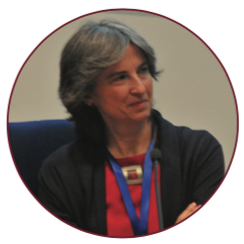
There is a direct parallel between the physical and emotional care given and the mental cognition. Family and care-givers of children must be taught and trained to nourish the child emotionally. – Anna Aluffi Pentini |
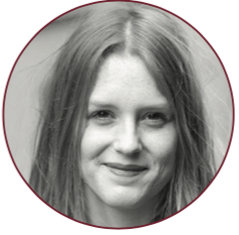
Digital devices are not only delivery systems but they are effective tools in enhancing interaction and communication between young students, teachers and parents. Multi-sensational, continuous, adaptive learning environment can be created by effective use of digital tools in pedagogy. – Marion Voillot |
||
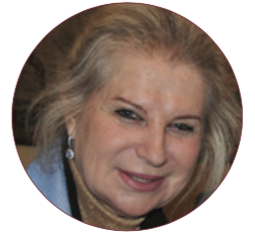
The findings of 30-years of research on speech behavior document the dual nature of speech—constructive and destructive. The unconscious, automatic brain system is the cause of negative interactions, anger and violence between people. Human beings possess an inborn ability to switch from unconscious/automatic speech to conscious/rational speech. That ability can be consciously developed by education. We can acquire the capacity to consciously switch from the lower system of unconscious speech to the higher system using our rational mind and emotional will. – Liora Weinbach |
|||
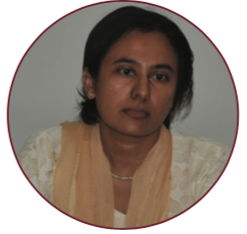
Learning is an enjoyable experience for children driven by natural curiosity. The Mother Service Society’s early childhood schooling program at Primrose School in Pondicherry, India has demonstrated that children who have an early start can read fluently by age 7 and acquire a wide range of knowledge out of native interest without parental or teacher pressure or compulsion. – Janani Ramanathan |
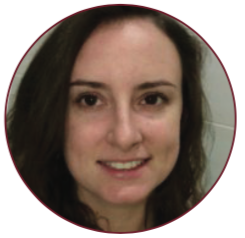
We need to find better strategies to use technology to engage students and provide personalized learning. Interaction and attention helps the child grow. Technology has a unique capacity for reaching individuals and its power has to be harnessed correctly to reach kids. Internet has opened up access for girls, minorities and disabled people, giving them platforms to express themselves. – Julie O’Donohue |
||
|
|
|||

|

|
||
Educating Minds for Independent Thinking, Innovation & Creativity
|
|||
Roundtable Recommendations on Education for CreativityThe conclusions of the Dubrovnik roundtable were presented and discussed in Rome.
|
|||
Contextual, Relational, Human-Centered KnowledgeExcerpts from the special address of Edgar Morin (Philosopher & Sociologist, Theory of Knowledge and Complex Thought, France) on November 18, 2017. |
|||
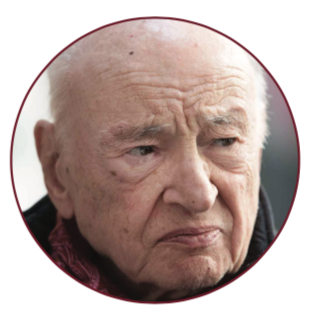
Our education gives us knowledge, mostly scientific knowledge, but it does not supplement it with a context or perception. This system prevents us from seeing the complete picture due to its emphasis on compartmentalization and objective facts. In such a system, our emotions, feelings, ideology, beliefs, and our organization of reality do not find a place. In reality, no issue can be understood in isolation. All issues are inter-disciplinary, and can be understood only within a context and when linked to everything else. Specialization has its place, but so does inter-disciplinarity. Sometimes the study of history reduces the individual human being to an automaton of society. Psychology may ignore society focusing exclusively on the individual. Science becomes a subject of study without reference to anything else. We need to add to all these studies the link to the human being. The human trinity includes the species, the individual, and the society, the three inseparable realities. Any of the three can be understood only in relation to the other two. This relationship must be embedded in our education. Similarly, it has to recognize that pure reason does not exist. All humans are a mix of reason and passion. Passion without reason slips into delirium; a reason without passion tends towards rigidity. It is not possible to separate the human being from his or her beliefs—be they ethical, moral or religious. We may often seem to be solely interested in our own well being, but we are also capable |
of selfless generosity. We are neither entirely rational nor entirely irrational. But some the subjects we teach, such as Economics, ignore this truth. Education must make this aspect of our conceptual framework explicit. Our education also witnesses a widening gap between science and the humanities. We cannot effectively address the complex problems humanity faces if we disconnect the two streams. We need to reconnect the physical and metaphysical. The contribution of literature and poetry to the formation of human consciousness is significant. Piecemeal attempts at solving problems that ignore the human context and interrelationships between issues are of no avail. Real education must equip the mind to synthesize information from many sources, understand relationships, and see the whole. Errors and mistakes in taking decisions, managing relationships, career or politics can have great negative consequences. It may not be possible to teach an infallible method for avoiding mistakes. But it is possible to teach about the ways of thinking and ways of knowing that commonly lead to errors and illusions. To bring about these changes, a government decree is not enough. We need to implement these reforms, beginning with pilot projects. We need to supply real life experiences to students, not just information in textbooks. Correspondingly, teachers need enriching training. The role of teachers will continue to be valuable. Computers, internet, Wikipedia and Google search can supply students with information, but humans will always need human contact. Students will always benefit from the presence, the contact of the teacher. Many a student has been inspired and transformed by the teacher. |
||
Higher Learning for TomorrowThe only feasible way in which we can improve the world situation is to enter into the gate of common prosperity on the basis of enlightened self interest. In pursuance of the founder’s ideals, KHU has always been aware of the responsibility of universities towards the wider global society. It believes in conscious higher education. Global citizenship education has always been at the heart of the higher learning in the KHU campus. – Stephen Yong-Seung Park |
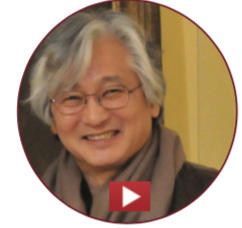
Higher education today prevents students from inquiry and thinking for themselves. Much of the education system is conditioned and manipulative. Education and truthful learning, along with values such as justice, hospitality, peace, sympathy and human rights are rapidly giving way to profit. In this transition in higher education throughout the world, values and human consciousness are the first victims. We see this in the cutting down of humanities courses in many universities. A holistic perspective with sympathy towards other people is an important point for a new paradigm in education. – Minwoong Kim |
||
Online and Hybrid Education
|
|||
Education to meet Societal NeedsExcerpts from the special address of Peter Senge (Systems Scientist, Senior Lecturer, MIT Sloan School of Management & Founder of the Society for Organizational Learning, USA) on November 18, 2017. |
|||
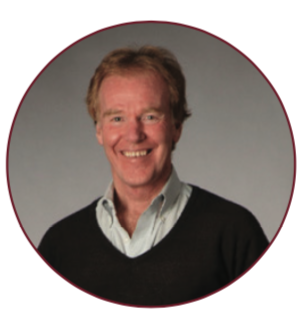
Our world is full of interdependent and interconnected networks, and we need to understand the system better to avoid negative outcomes. Educational institutions of the industrial age were built to train factory workers. They were never expected to be the source on innovation. The Industrial Age is coming to end as we recognize its fundamental disharmony with living systems on a social and ecological level and its disconnect from wider societal needs. We cannot be free of this era without making deep changes in the primary and secondary education. As John Dewey said, education is the fundamental method of social progress and reform. We must take both an outside looking in and an inside looking out perspective, to see the mismatch between school and reality. The functionalities of the school are individualistically competitive, teacher-centric, curriculum-centric, passive, contextless and focused only on teaching technical skills like basic literacy and numeracy. These defining features of schools are imprints of the industrial age. This is irrelevant to the life of the children and the community they live. It is at odds with the reality and results in disengaged teachers and students. We must also take the standpoint of the society to understand the problems generated by the present system. To what extent are we satisfied with the models of civilization that we are creating and perpetuating through our education pathways? |
At no time in human history are children more aware of the state of the world. They understand the turmoil going on locally and globally. With unstable models of public leadership in the age of profound disruption, kids are faced with the dilemma of going down a path of education that does not fit or equip them to succeed in the emerging society in which they live. Educational innovators are building new models with project-based, learner-centric, contextual learning that are deeply rooted in the reality of the child’s life. They are bringing the focus on the development of the person. A lot of guidance is needed to steer the process that will come from outside looking in perspective, when schools step up to fulfil the needs of society. Harmonizing the forces for innovation internally with the imperatives for change externally is the key. The educational model built by the IB network of schools is global and cross-cultural. It has 6000 programs around the world, helping students learn to create the world in which they want to succeed. Primary and secondary school students understand complexity and interconnectedness in global issues like water. IB network teaches to build Compassionate Systems—compassion for the self, other and the larger social system. It integrates social and emotional learning, rooted in mindfulness and awareness. Technology platforms are really important to democratize education, like the revolution brought by MOOCs of MIT. Technology is an enormous enabler for the innovation needed in education. It can be effectively used to foster learning communities like Teach for all, ULab, J-WEL that bring deep, lasting, ongoing innovation in global education. |
||
The Challenges of Future Education: A Student Perspective
|
|||
What do Students Need?
|
|||
Feedback from participants at the Future Education Coference, Rome
|
|||
Feedback from Kyung Hee University StudentsKyung Hee University, Seoul, is a collaborator partner institution of WUC and WAAS and co-organizer of the Rome Conference. KHU’s President Inwon Choue, a recently elected WAAS Fellow, sent two deans and 23 students of the university to Rome and organized a special plenary session on “Higher Learning for Tomorrow: Challenges Ahead”. Prior to the conference, KHU students surveyed hundreds of their classmates to identify core issues of concern regarding the future of education and met as a group several times to discuss and prepare recommendations. In Rome they interacted with student representatives of Roma Tre University, speakers and other participants and presented their views in plenary and parallel sessions. The following is an assessment of their experience at the conference prepared by the KHU students following their return to Seoul after the conference.
|
|||
|
'Discuss future education in Rome, the city of millennium history’. This sole sentence on recruiting poster for Rome Conference was really critical for us, KHU student representatives, as it was our first step to Rome. We have been standing together, sharing serious issues of the current education system and discussing solutions. So, we would like to thank you first, for giving us the honor to quench our thirst for seeking new education paradigm with world-renowned scholars, especially in the beautiful city, Rome. We have studied and participated in a lot of events about future education for last three months. We not only did whole school survey, but also did heated discussion surrounding various issues related to this topic—such as the cause, side effects and solutions. Based on those activities, we participated in the conference in Rome with three goals. Firstly, to listen to renowned scholars’ discourse on issue of future education. Secondly, to share our study and contemplation with scholars and students of Roma Tre University (RTU). Thirdly, to find better solutions through our experience. Rome conference was an amazing event to KHU students. We had opportunities to have a personal relationship with the world’s erudite scholars: listening from them, delivering students’ thoughts and discussing future of higher education. While communicating with them, we saw a bright future for higher education. We spoke about the topics which had been discussed before coming to the Rome since we felt that education system would not be changed only by students’ efforts. At the Rome, we had a chance to meet scholars who have been trying for positive change in the education system. They delivered a speech about the |
problems of education system, addressed the solution. Most of speeches were very realistic and enough to give students more reasons to put much efforts for education in the rapidly changing world. And we found that some of the scholars exactly know what is the main problem of education system, and the cause of conflict between young and old generation. It was an unforgettable memory. We are certain that our generation will overcome difficulties that we are facing. The various sessions helped student to find out the main topic of the education: person-centered education, creativity, transformational leadership, value-based education, transdisciplinary education, and etc. After the conference, we are making actions to achieve those values, which were expressed at the conference. After the Rome conference, we, the students of KHU were able to deepen and intensify the concerns and questions we had on education. We started to think about what we could do in practice for the enhancement of the future’s paradigm of education. We are in the process of writing a proposal that is comprised of feasible alternatives for future education. Also, at an influential debate, we have presented our own opinions on how education reform should take place. We are also planning to directly deliver to the president of our university a holistic review of our deep insights and consciousness in education, along with a feasible direction and alternative for future education. We would like to sincerely express our gratitude to WAAS, for giving us such an opportunity to expand our insights on education. We too hope that one day, the education system will be completely free from its current concerns once and for all. We will continue to strive for the improvement of education with all our might. |
||
Preparing for Life in the 21st Century
|
|||
Report of the WAAS-WUC Students’ Survey
|
|||
|
|
|
|
|
|
|
|
|
|
|
|
|
|
|
|
|
|
|
|
|
|
|
|
|
|
|
|
|
|
|
|
Click here to view/download conference compiled papers
SECTION 1: INTRODUCTION
- Introductory Remarks by the President of WAAS by Heitor Gurgulino de Souza
- Introductory Report on the 2nd International Conference on Future Education by Garry Jacobs & Alberto Zucconi
- Contextual, Relational, Human-Centered Knowledge by Edgar Morin
- Education to meet Societal Needs by Peter Senge
SECTION 2: UNIVERSITIES REFLECTING THE CURRENT STATE OF THE SYSTEM
- The European University in Crisis: A Vision From Spain by Juan Cayón Peña
- To Cope with Present and Future Catastrophic Risks, Higher Education must Train Future Decision Makers to Think Critically, Ethically and in Systems by Lennart Levi & Bo Rothstein
- The Knowledge of Complexity should be a part of Contemporary Education by Jüri Engelbrecht
SECTION 3: THE NEED FOR A NEW PARADIGM
- Some Reflections on the Future of Education by J. Martin Ramirez & Tina Lindhard
- Higher Education and the New Society of Third Millennium by Emil Constantinescu
- Future Education: A New Paradigm by Federico Mayor Zaragoza
- The Challenges for Future Education: A Global Perspective by Marco Vitiello
SECTION 4: WHERE TO BEGIN: CHANGE NEEDED AT THE PRIMARY LEVEL
- Start Early, End Strong by George Halvorson & Robert J. Berg
- Breaking Barriers with Building Blocks: Attitudes towards Learning Technologies and Curriculum Design in the ABC Curriculum Design Workshop by Kristy Evers
- Young Children, Digital Technology and the School of Tomorrow by Marion Voillot
- The Impact of Exogenous Urban Factors on Absenteeism and Dropout Rates by Davor Bernardić
SECTION 5: MIND, THINKING AND CREATIVITY
- A Brief History of Mind and Civilization by Garry Jacobs
- The Integration of Knowledge by Carlos Blanco
- Insights on Creativity by Vani Senthil
SECTION 6: TRANSDISCIPLINARITY: BREAKING THE SILOS
- UNIVERSITIES: Enhancing the Education, Research and Innovation Base by Marcel van de Voorde
- Transdisciplinary Education for Deep Learning, Creativity and Innovation by Rodolfo A. Fiorini
- Universities and Knowledge for Sustainable Urban Futures: as if Inter and Trans-disciplinarity Mattered by Giulio Verdini & Olivia Bina
SECTION 7: TOOLS/CATALYSTS IN THE TRANSFORMATION PROCESS
- The Teacher as Catalyst: Skills Development & Self-Discovery in Group Contexts by Ullica Segerstrale
- The Future of Higher Education: The Role of Basic Values by Winston P. Nagan & Megan E. Weeren
- Online and Hybrid Learning by Janani Ramanathan
- Revisiting our Evolutionary Path: The Search for Holistic Education in a Fragmented World by Gerald Gutenschwager
- Lifelong Learning, A Necessity in the Knowledge Society by Raoul Weiler
- Higher Education and Small Countries by Momir Djurovic
- Teaching Assistants (TAs) as Secondary Facilitators in an Academic Support Unit in a South African University by Makhanya-Nontsikelelo Lynette Buyisiwe
SECTION 8: THE RESULT: PEACE, BETTER GOVERNANCE AND NEW ECONOMICS
- Education, Democracy and Peace by Siro Polo Padolecchia
- Education: An Essential Tool for Reaching the UN SDGs by 2030 by Yehuda Kahane
- Transforming Education for a Transition into Human-centered Economy and Post-normal Times by Elif Çepni
SECTION 9: AGILE LEADERSHIP AND DECISION MAKING – THE ROAD AHEAD
- Change Leadership: Leading by Empowering and Innovation by Tatjana Mitrovic
- Agile Management Education for the Future: The Role of Social Capital & Trust by Grażyna Leśniak-Łebkowska
- Sustainable Business as the Base for Sustainable Entrepreneurs: Some Theoretical and Practical Reflections by Zbigniew Bochniarz
Papers & Presentations
- Welcome Speech by Heitor Gurgulino de Souza
- Education, Science & Innovation by Carlos Alvarez Pereira
- Education for Entrepreneurship by Zbigniew Bochniarz
- Individuality & Transformational Leadership by Stefan Brunnhuber
- Homo faber or Homo ludens by João Caraça
- Mind, Thinking and Creativity by MSR Dev
- Higher education and small countries by Momir Djurovic
- Learning to Think Creatively by Piero Dominici
- Learning to Think Creatively by Rodolfo Fiorini
- Transdisciplinary Education, Anticipation and Complexity by Rodolfo Fiorini
- Transdisciplinary Education, Anticipation and Complexity by Barry Gills
- Critical Thinking in Higher Education by Sigmund Grønmo
- Start Early, End Strong by George Halvorson and Robert J. Berg
- New Paradigm in Pedagogy by Sara Isakovic
- Education: an Essential Tool for Reaching the UN SDGs by 2030 by Yehuda Kahane
- Beyond the Boundary for New Paradigm in Higher Education A Case from Kyung Hee University by Minwoong Kim
- Education for a Peaceful, Inclusive and Resilient Society by Donato Kiniger-Passigli
- Provide Training In Critical-Ethical Analysis At All Institutions Of Higher Education by Lennart Levi
- Higher Learning for Tomorrow: Challenges Ahead by Walter Lorenz
- Active, Collaborative learning by Nontsikelelo Makhanya
- Individuality & Transformational Leadership by Ruben Nelson
- Education, Health & Sustainability by Elizabet Paunovic
- European University in a Crisis by J.Cayon Pena
- Education and Societal Needs – Corporations, Unions and Government Perspectives by Luigi Perissich
- Educating for the Unknown by David Perkins
- Education, Democracy & Peace by Siro Polo Padolecchia
- Human Rights, Social Power & Education by Martin Ramirez
- Education for the Future:SOME BITS AND BOBS by J.Martin Ramirez and Tina Lindhard
- Education for the 4th Industrial Revolution by Daniel Sandi Pinheiro
- Innovation Creativity and Technology by Vani Senthil
- Early Childhood Learning by Vani Senthil
- Education for Entrepreneurship by Matthias Straub-Fischer
- Education, Science & Innovation by Marcel Van de Voorde
- Universities and Knowledge for Sustainable Urban Futures by Giulio Verdini & Olivia Bina
- Early Childhood Learning by Marion Voillot
- Lifelong Learning LLL Structure by Raoul Weiler
- Switch My Mind -SMM: The Method to Ratio-Humanication Skills by Liora Weinbach
- Multiculturism & Education by Min Yang
Abstract of Presentations
IA Mind, Thinking, Creativity.
1B Roundtable on Education for the 4th Industrial Revolution.
- Higher education in a small country by Momir Djurovic.
- Education for the Future: SOME BITS AND BOBS by Martin Ramirez & Tina Lindhard.
- Transforming Education For The Transition To The Human Economy And Postnormal Times by Elif Çepni
- Online and Hybrid Learning by Kathryn Skelton.
- The Vital Need for Online and Hybrid Learning by Janani Ramanathan.
1D Education, Economy and Society.
- Influential urbanistic factors of the education system and quality of its outcome by Davor Bernardic
- Issues in economics education by Jamie Morgan.
- Global History and Global Education by Barry Gills
- Agile management education for the future: the role of trust and social capital by Grazyna Lebkowska
- From Theory to Practice: the importance of Rethinking Economics by Daniele Bigi
1E Education, Democracy & Peace.
- The University in front of a Human-centered Society; a Vision of the European High Education by Juan Cayón-Pena
- In this Era of Transition and Globalization people don’t believe in WHAT THEY SEE, but only SEE WHAT THEY BELIEVE by Siro Polo Padolecchia.
- Provide Training in Ethical-Critical Analysis at All Institutions of Higher Education by Lennart Levi
- Recognizing and Cultivating Universal Human Values by Kadie Ward.
2A Education for Entrepreneurship.
- Sustainable Business as the Base for Sustainable Entrepreneurs: Some Theoretical and Practical Reflections by Zbigniew Bochniarz.
- Kaos Pilots Switzerland – and how to involve ancient wisdom into modern leadership training by Matthias Straub-Fischer
2B Active, Collaborative learning — teaching methods.
- Pedagogical innovation in HE to support students’ academic emotions by Annie Aarup Jensen.
- Education must stimulate all students’ imagination in order to develop creativity, progress and democracy by Birthe Lund.
- Tuition and Intuition, a Dilemma of Difference by Marianne Holbert
- As Easy as ABC: A Pilot Study on the Impact of the ABC Curriculum Design Workshop by Kristy Evers
- Teaching assistants as secondary facilitators in an academic support unit in a South African university by Nontsikelelo Makhanya.
- Moving towards a more sophisticated understanding of disability and inclusivity at university by Danijela Serbic
- How principles learned through sports & performance need to become a part of a daily education system by Sara Isakovic.
- Education for a peaceful, inclusive and resilient society by Donato Kiniger-Passigli
- Early Childhood Learning by George Halvorson.
- Rash or Rational Speech? By Liora Weinbach.
- Early Years Coding Prepares Future Problem Solvers by Julie O’Donohue.
- Children, digital technology and the school of tomorrow by Marion Voillot
2E – Human Rights, Social Power & Education.
2F Learning to Think Creatively.
- Achieving Effective Predicative Competence for Person-centered Learning and Creativity by Rodolfo A. Fiorini
- The Teacher as Catalyst: Skills Development and Self Discovery in Group Contexts by Ullica Segerstrale
3A Multiculturalism & Education.
- An investigation into non-local university students’ intercultural experiential learning by Min Yang
3B Innovation, Creativity and Technology.
- Not just another brick in the wall. A delphi study on the future of learning and technology in the Netherlands by Dhoya Snijders
- Homo faber or Homo Ludens? By Joao Caraça.
- The Dynamic Definition of Creativity: A New Framework for Education in Creativity by Giovanni Emanuele Corazza.
3C Education, Health & Sustainability – Sustainable Development Goals.
- Proposal for Long Life Learning System by Raoul Weiler
- Consciousness and Sustainable Cities by Kadie Ward.
- Education: An Essential Tool for Reaching the UN SDGs by 2030 by Yehuda Kahane.
3E Complexity, Unity & Uncertainty.
- Beyond the “False Dichotomies”. The urgency of Rethinking Education to heal the fracture between the human and the technological by Piero Dominici
- Capacity to aspire and uses of the future in the classroom by Roberto Poli
- The knowledge on complexity should be a part of contemporary education by Juri Engelbrecht
3F Individuality & Transformational Leadership.
- Change Leadership: Leading by Empowering and Innovation by Tatjana Mitrovic.
- Leadership for Civilizational Paradigm Change by Ruben Nelson.
- The Big Five – The Science Gap in Educational Reform by Stefan Brunnhuber.
- Education for Leadership: Metaeducation, Initiatory Learning and the Future of Excellence by Mila Popovich
- Transforming Teachers as Agents of Change: A Qualitative Case Study by Mir Afzal Tajik.
4A Education for Full Employment
4B Education, Science & Innovation.
- Co-creating science and innovation for desirable futures by Carlos Alvarez-Pereira.
- Revisiting Our Evolutionary Path: Holistic Education in a Fragmented World by Gerald Gutenschwager
- UNIVERSITIES: Enhancing the Education, Research and Innovation by Multi-/ Inter-/ Transdisciplinary Education by Marcel Van de Voorde.
- Strategic Planning: Designing an Online Global Curriculum to Accelerate Progress and Wisdom by Lloyd Etheredge.
4D Transdisciplinary Education, Anticipation and Complexity.
4E Transition to a New Paradigm in Education.
- Systemic Innovation in Education – the Collaborology Prototype by Dino Karabeg.
- Educational ecosystems for societal transformation by Pavel Luksha.
- Universities and Knowledge for Sustainable Urban Futures: as if inter and trans-disciplinarity mattered by Giulio Verdini & Olivia Bina.
Abstracts of Presentations
IA Mind, Thinking, Creativity
Email address: sigmund.gronmo@uib.no
Abstract:
Higher education leads to two types of qualifications. One is a specific qualification for a particular profession, as an engineer or a dentist, or a particular discipline, as a biologist or an anthropologist. The other is a general academic qualification, which is common to all higher education, focusing on analytical abilities, independence, creativity and critical thinking. The presentation will focus on the increasing importance of the general academic qualification in future higher education, with a special emphasis on the need for, and the role of, critical thinking. The role of critical thinking in the search for truth becomes more and more important when the concept of truth is contested, when truth is relativized, and when the concept of alternative facts has been introduced in politics and public debates. The need for critical thinking is discussed in the light of fundamental changes in society, including the increasing amount and complexity of available information, the increasing speed of communication processes, and the increasing number of different types of media.
1B Roundtable on Education for the 4th Industrial Revolution
Email address: momirdj@ac.me
Abstract:
The basic purpose of higher education is at least twofold. One should be to provide students with certain knowledge needed for the job, and the more important is to prepare them for future learning.
To provide students with enough experience for the job should be easier. It needs the good relation of academic staff and institution with surroundings (industry, administration…) so as to accommodate teaching curriculum to real life. This means balancing theoretical and practical work. Is it provided adequately by, as practiced in Bologna process, B.Sc. education?
The other request: to prepare students for the “life learning” is more complicated. At present, this problem is solved mainly with additional curriculum, such as Master, Ph.D. or Specialist courses. A more fundamental solution would be to address basic curriculum so that students are able to educate themselves during their carrier so as to compete not only in the field in which they obtained undergraduate education, but in new, other professional fields, some of them not even known today. Both of these processes are more complex in small countries because of not having developed infrastructure, as well as not having human and economic potential to follow the trends of development.
Email address: mramirez@ucm.es
Abstract:
Far from pretending to offer a tentative structured theory or solution on the education so urgently needed in the 21st century, we would limit ourselves to some punctual considerations, perhaps with little connection between them on how education may facilitate our way towards a future human-oriented society.
A new model for of educating based on humanity needs an attitudinal change in our schools, from prioritizing the memorizing of the facts by repetition, to having a basic conceptual knowledge by equipping people with the ability to retrieve the information from wherever it is stored and the skills to start a business, lead a team, approach problems creatively and thinking strategically.
The main goal should not be so much to achieve information as its understanding. We cannot close our eyes to the consequences of Fourth Industrial Revolution, characterized by a fusion of technologies that is blurring the lines between the physical, digital, and biological spheres. A third interesting point to consider what has been suggested by Albert Einstein: “The world that we have made as a result of the level of thinking we have done thus far creates problems that we cannot solve at the same level as the level we created them”. Obviously, it leads us to a different perspective: from the previous one, which focused on information obtained on-line, through the man-made internet, the next one is involved with information obtained from the ‘cosmic internet’, available intuitively through the feeling heart. This requires a new way forward.
Email address: elif.cepni@bau.edu.tr
Abstract:
Managing the transition from the knowledge economy to human economy requires visionary leadership and a wide range of partnerships, developing new, more compherensive, flexible, innovative models of learning. Education of today would prepare current generations for the continuously changing world of the future.
There is no form of education which would meet different needs worldwide. Education is a basic human right and it cannot be purely demand–driven. Diversity of educational models, even within a given country should be encouraged.
The main aim of this paper is to discuss the alternative education systems which could eliminate the basic deficiencies of the current systems and showing the main reasons behind the necessity of formulating new ways of thinking in the formulation of new education policies.
1C Online & Hybrid Learning
Email address: kathy.skelton@futurelearn.com
Abstract
The international education sector is currently going through significant change, driven by market and political conditions. Student attitudes and expectations are also changing as digital technology advances and the HE world commercialises. The education institutions that will thrive will be the ones who have worked out how to properly bridge the gap between the educator and the student so that international access to course material can still be of the highest quality, at distance, within a diverse community of learners, achieving great and real results.
The presentation will discuss how FutureLearn works with partners to reach thousands of learners with flexible, enjoyable, credible courses and qualifications, and in doing so, supports universities through their digital transformation. Kathryn Skelton will also discuss what FutureLearn does differently through our approach to social learning.
Email address: harish.janani@gmail.com
Abstract
Education in developing countries is fraught with qualitative and quantitative challenges. There is shortage of institutions, teachers, and infrastructure. It is physically impossible to meet the excessive demand for education, given the constraints. Therefore, online education (and wherever possible its hybrid version) is the sole solution for meeting the educational needs in many countries. Communication tools, MOOCs, multimedia content and social media do play a role in education today. But using it to enhance the learning experience is highly dependent on the individual teachers and institutions. What we need is a well-planned, organized way of incorporating online learning into our education systems, and innovative means to overcome its shortcomings.
1D Education, Economy and Society
-
Influential urbanistic factors of the education system and quality of its outcome by Davor Bernardic
Email address : Davor.bernardic@gmail.com
Abstract
In the last decade, observation of negative influence of various factors on education system and their mutual interaction, attained the special attention of scientists all over the world. Subjects of interest are dropout rates, correlation between school absenteeism and overall education outcomes.
It is necessary to identify exogenous factors and understand the role they have in problem expansion process because the loss is multiplied: felt by parents, school, pupil and society. Poorly educated people limit economies’ capacity to produce, grow and innovate. School failure damages social cohesion and mobility, and imposes additional costs on public budgets to deal with the consequences higher spending on public health and social support and greater criminality, among others.
Exogenous factors influencing school attainment are not under direct jurisdiction of policy makers, and since capital investment creating educational system context take significant part of its disposable budget, they should be able to deliver visible improvement to the system and make lasting, countable positive effect on its users, in order to be effective.
This paper will use cross country data on curricula, education outcomes and early childcare attainment of last decade in order to underline significant differences between systems, which can be used as framework to think about needed endogenous elements redesign.
Email address: Jamiea.morgan@hotmail.co.uk
Abstract
Critique of economics is longstanding. However, the global financial crisis provided renewed impetus for a different kind of approach to economics, more oriented on meeting human needs and on solving fundamental problems. The main issue is not that economics has no interest in these subjects but rather that the way they are approached is distorted, subverted, undermined or rendered unrealistic by the way in which economists have approached what it is to be “an economist”. There have been many responses in recent years: the “empirical turn” and “credibility revolution” in economics; new curricula such as CORE; student movements such as Rethinking Economics. The key questions remain: how different is the new different and what scope is there for transformation in the subject and teaching of the economy (and will this be pursued by economists or by others filling a gap)? What can the New Economics Working Group under the auspices of WAAS offer?
Email address: barry.gills@helsinki.fi
Abstract:
There is an urgent need to develop a new curriculum of Global History, constructed from a post Eurocentric perspective, for purposes of global education. Such a curriculum would be designed to transcend the limitations of national history, and used to educate a new generation of university students around the world. The focus should be upon the identification and documentation of major processes of social transformation, understood as world-historical processes of change.
-
Agile management education for the future: the role of trust and social capital by Grazyna Lebkowska
Email address: grazyna.lebkowska@gmail.com
Abstract:
Forecasting the future trends in any area becomes more and more frustrating in view of the accelerating pace of change in all components of reality, resulting in unprecedented complexity of possible impacts. Hard times call for unstandardized solution of how to stay accountable for numerous stakeholders, when the value of traditional management theories and concepts in turbulent environment is undermined and performance endangered. The common rationality brings two practical solutions: building resistance to shocks and agility to take advantage of perceived opportunities and available resources. When interviewing managers on their strategic imagination and trust factors, one can find limited perspectives, reduced creativity and real capability to respond to problems on time. This paper is aimed at showing the role of soft factors such as trust and social capital as the base for meaningful moves allowing for integrated actions. To properly address the future challenges and use the proper tools in setting goals, strategies and execution, a whole new set of management competences are needed as well as new forms of managerial education with more team-based business-driven action learning and design thinking.
Email address: daniele.bigi2@studio.unibo.it
Abstract:
Rethinking Economics is an international movement of students, professors and practitioners advocating pluralism in economic teaching and the democratization of economics.
In the first part of the presentation, I will explain why Rethinking Economics was born: the contents of current economic curricula will be described based on the analyses carried out by various student associations; these contents will then be further analyzed to highlight the dominance of the neoclassical school of thought.
In the second part of the presentation I will explore the three dimensions of economic pluralism: the theoretical, methodological and interdisciplinary pluralism will be analyzed in sequence, each with its implications on economic education. The importance of theoretical pluralism in particular will be argued with regards to the characteristics of neoclassical models, and the assumptions they rely on, in comparison with the models produced in other economic traditions. I will afterwards emphasize the potential benefits of a theoretically diverse community of academics and policy makers.
In the third part, a brief review of the initiatives put forward by Rethinking Economics and other allied organizations will be offered, in order to explain how we are planning to bring about the outlined changes in economic education and practice: in particular, I will present the Critical Economics Summit, an international conference organized by Rethinking Economics Italia.
In the last part, I will explain how our movement can be joined, describe the resources we offer to foster pluralism in economic teaching, and some of the projects we are currently launching.
1E Education, Democracy & Peace
-
The University in front of a Human-centered Society; a Vision of the European High Education by Juan Cayón-Pena
Email address: jcayon@nebrija.es
Abstract:
Education and University are essential topics in a human-centered society. This paper tries to approach, from a critical point of view, which are the problems in the European Higher Education Area and particularly in Spanish university system, in order to achieve a human-centered society.
-
In this Era of Transition and Globalization people don’t believe in WHAT THEY SEE, but only SEE WHAT THEY BELIEVE by Siro Polo Padolecchia
Email address: s_polopadolecchia@monaco.mc
Abstract:
We live in an Era of globalization, fueled by rapid innovation and habits’ liberalization. Our system of global governance is, however, rather primitive as much as education, while nationalism is rising leading to civil strife and conflicts. Our ethical standards are also far from perfect while we are creating inequities between individuals as much as nations, and we are destroying our environment, often ignoring human rights and societal obligations. But the greatest challenge facing Mankind is the contradiction between globalization and insufficient education.
The health and survival of this planet and its inhabitants is not only based on technological innovation or economic decisions, but on human abilities to learn, understand and master correct information in homes, schools and mass-media, which all have great responsibility in guiding the young and to transform methods of learning and educational systems.
This World of Appearance, Superficiality and Vanity is built on a vacuum and requests more conviction, more humility and more sense of responsibility, as the general vision is disastrous, as our society and our youth seem to receive its education by ignorant impostors, and students learn to speak a distorted language and imitate those born and grown in the absence of culture.
The future can best be predicted from knowledge about the past as the more we learn from the past, the better off we are bound to be, since our species has faced these and other risks before and has prevailed.
1F Value-based Education
-
Provide Training in Ethical-Critical Analysis at All Institutions of Higher Education by Lennart Levi
Email address: lennart.levi@eurostress.se
Abstract:
Institutions of higher education must train future decision-makers to think both critically and ethically. Professors Levi and Rothstein are proposing an international, interdisciplinary analysis of potential strategies for adopting such a system
Global Risks Report 2017 by the World Economic Forum and Global Catastrophic Risks 2017 by the Global Challenge Foundation catalogue an impressive series of major threats to human survival. The reading is enough to make you sleepless for several nights.
UN Agenda 2030 and its 17 global development goals offer, however, some consolation by prescribing strategies for managing and averting such threats.
The objectives set for the world community are both ambitious and crucial. Eradicating poverty. Making hunger a thing of the past. Ensuring universal access to health and wellbeing. Providing education for everyone. Fighting climate change. Guaranteeing clean water and proper hygiene, Building peaceful and inclusive societies. And that’s just for starters. 17 goals and 169 targets.
It strikes us that many current decision-makers around the world are trapped in economic determinism, egotism, contempt for knowledge, short-term perspectives and silo thinking. For that reason, we are proposing that all institutions of higher education, regardless of faculty or subject matter, adapt training in order to instil.
- the desire and ability to promote sustainable goal fulfilment (ethical thinking);
- the desire and ability to see through the faulty and unrealistic assumptions of yourself and others (critical thinking);
- thorough understanding and mastering of systemic structures (to deal with ethical dilemmas).
Our proposal for the first step in that direction is an international, interdisciplinary summit conference with the task of analysing both what needs to be taught and how to teach it. Why? Because worn-out phrases and longing gazes won’t get us where we want to go.
Email address: kadie@buildstrongcities.com
Abstract
In the wake of Ukraine’s “Revolution of Dignity” (2013/2014) a new generation of youth across Ukraine woke and started self-identifying with a set of values penned by the Late Bohdan Hawrylyshyn. This treatise was ratified by the WAAS Board of Trustees in 2013.
Originally titled “15 Human Obligation”, the principles therein represent a set of shared human values that are stripped of both identity politics and geopolitics. Launching a campaign to capture how youth are applying these principles in a values-based life, our team is arguing that in order reach the UN Sustainability Goals and change the current economic and social paradigms we must challenge citizens to become active responsible contributors in shaping their present and future reality.
Our campaign seeks to demonstrate how youth are already transforming their communities around them by committing to values-based living. We will take our message to Davos, Canada, Switzerland and the UN General Assembly in 2018 in order to facilitates a global conversation about the role of human responsibilities in developing healthy economies and societies, and how living a life based on values will not only improve an individual’s life, but also change the world around.
2A Education for Entrepreneurship
-
Sustainable Business as the Base for Sustainable Entrepreneurs: Some Theoretical and Practical Reflections by Zbigniew Bochniarz
Email address: zbigniew.bochniarz@gmail.com
Abstract:
With the growing threats to sustainability of the Earth the urgent issue is to prepare the cadre of entrepreneurs, who understanding the complexity of sustainability, will lead their organizations toward a sustainable future. The issue of sustainable entrepreneurs is critical not only for the business sector but equally important for the public and non-profit sectors. This paper is focusing on business entrepreneurs utilizing booth theoretical models and practical cases coming from research conducted by international teams of graduate students on selected international corporations.
It starts with a brief overview of evolution of sustainability, sustainable business and entrepreneur concepts. The authors move to analysis of common and specific features of several cases of entrepreneurs who tried to make their companies sustainable.
Finally the paper analyses the effectiveness of delivery method based on student-centered concept implemented by creating a learning community with action research.
-
Kaos Pilots Switzerland – and how to involve ancient wisdom into modern leadership training by Matthias Straub-Fischer
Email address: matti.straub@kaospilots.ch
Abstract:
At the Kaos Pilots Switzerland we are offering a 3-year full time study program and training for people who want to unfold who they truly are. For this we have integrated an ancient Earth Wisdom, the Delicate Lodge Teachings from Northern America. How are students learning from this ancient wisdom, the medicine Wheels and the protocols? How can we integrate ancient wisdom traditions into modern educations – be that into management or any other training? How can we move from pyramids of power to circular structures where every voice matters?
2B Active, Collaborative learning — teaching methods
Email address: aaj@learning.aau.dk
Abstract:
Students in Higher Education have some kind of self-images and understandings of their abilities, skills and competences, when they start. This means that coming to university implies risks, it challenges their learning identity and questions the transferability of competences. HE students are (young) adults and the process of meaning-making is essential to adult learning processes. When meaning-making becomes difficult, if for instance you struggle to understand an unfamiliar setting or the subject-related issues, it may lead to emotional responses such as feelings of confusion, uncertainty, self-doubt or even anger, or, in a different vein, feelings of curiosity and interest.
When creating relevant learning scenarios for the 21st century learners innovative pedagogical approaches are necessary. The question is therefore whether emotional responses might influence students’ willingness to participate in innovative and/or experimental teaching and learning processes in a negative way, or whether such pedagogical approaches may provide the framework for reducing negative emotions by offering new forms of meaning-making scenarios.
-
Education must stimulate all students’ imagination in order to develop creativity, progress and democracy by Birthe Lund
Email address: bl@learning.aau.dk
Abstract:
This paper is inspired by pragmatism and John Dewey´s concepts of learning. Dewey portraits ideas as images-of-things-that-might-be which require action to determine whether the “might-be” can be transformed into “is”. Character and mind are integrated and related to what we desire and imagine, to what we wish to accomplish. The paper argues that critical examination of concepts of creativity as dominating understandings of creativity as a personal talent or a special gift (which gains extra resources to the gifted or special programs) may exclude the majority of students from developing their creative potential and harm wishful thinking and imagination. The quality of interaction between person and environment affects learning and creativity development as we experience from the perception of coming actions by expectations of what will happen, of how the situation “talks back”. Consequently we need to be sensitive to what students actually experience in education as students’ curiosity are needed in generating a wider horizon of meaning. Curiosity may lead to questioning and experimentation, generating possible explanations and testing theories, and expanding their horizon of meaning. Experience based learning process calls for imagination when interacting by the surroundings – as the concrete image influences the chosen course of action, and in turn may be transformed by that very action. In order to create the foundation for a democratic society, all students should be part of inclusive and experience based learning communities to develop progressive creative ideas and imaginations.
Email address: marianne.holbert@colorado.edu
Abstract:
With the swipe of a finger, years of data and information appear. There is no limit to the type of data one can access online from home prices and abandonment rates to crime statistics and detailed demographic analyses. New communication technologies have become inescapable and play a critical role as a cultural catalyst, informing our perceptions of the world. However, the perceived digital symbiosis has been demonstrated to sever one’s ability to retain information, further analyze it and transform it into understanding. The rift between information and knowledge continues to deepen. While the disjunction between information and knowledge operates with intensity at both the practical and theoretical levels, it has deep roots. Ancient and contemporary thinkers continue to debate the facets of knowledge. Plato defined knowledge as the ‘justification of belief’ and argues that there are two ways of knowing, either we have direct access to reality ourselves or we rely on what others say. Similarly, Ralph Waldo Emerson argued that knowledge has two primary facets: tuition and intuition. The first, implies evidence gathered from external sources and is based on instruction while the second, proceeds from direct experience. Based on a case study conducted at the University of Colorado Boulder, this paper will share findings on strategies to utilize both tuition and intuition to inform (1) learning environments (2) innovative educational pedagogy and (3) the future knowledge needs.
Email address: kristyevers@hotmail.com
Abstract:
Coming from the need to provide help to teachers to design or redesign their blended or online programmes, the ABC Curriculum Design Workshop was developed in 2014 by Nataša Perović and Clive Young at UCL. At this stage, the interactive and hands-on workshop has been trialled with great success over a variety of programmes across universities and countries. While it was developed with specific UCL strategic initiatives in mind, the workshop has proven to be very adaptive to other settings.
The theory behind the workshop is the Conversational Framework, which is a learning theory developed by Diana Laurillard at the UCL Knowledge Lab. The theory posits six different types of learning and the kind of activities that are associated with each. In practice, the workshop is an engaging 90-minute card-based approach to curriculum design. The main aim of the workshop is for participants to design engaging learning activities for their programmes. Usually, participants work together in teams, based on the programmes they are looking to design. Together, they have to create a ‘storyboard’ that shows the type and sequence of learning activities and the type of assessments they want to employ in order to reach their module’s learning outcomes. Thus, the workshop provides a good basis for reflection and discussion on different topics, ranging from what digital versus conventional activities are good to use in your curriculum and what summative and formative assessment points should be included in the curriculum design.
Aiming to study the impact of the workshop, this paper will share the findings of the two initial qualitative case studies, which mark the beginning of a larger project looking into the effectiveness of the workshop and which particularly look at the participants’ attitudes towards learning technologies and curriculum design and how they might have changed.
-
Teaching assistants as secondary facilitators in an academic support unit in a South African university by Nontsikelelo Makhanya
Email address: buyi@mut.ac.za
Abstract:
Teaching assistants fall under the category of peer facilitators, like, student mentors, writing consultants, SI leaders, student assistants, etc. A variety of duties is performed by these individuals, among others, they lead laboratory and teaching sessions, help with marking and entering of marks, carry out administrative duties, and so on. The university seeks to provide a high quality, technologically advanced service to students in order to improve throughput rates. Many teaching assistants receive little training before taking on their duties whilst at the same time have enormous responsibilities. They are literally thrown into teaching environments in a sink or swim manner with no experience or training. This paper seeks to investigate from present and past teaching assistants about the nature of their experiences as secondary facilitators in the academic support unit under the guidance of academic literacy lecturers.
2C Person-Centered Education
-
Moving towards a more sophisticated understanding of disability and inclusivity at university by Danijela Serbic
Email address: danijela.serbic@rhul.ac.uk
Abstract:
University life has changed for new generations of undergraduates, who are more than ever exposed to competitive education, uncertainty about the future, high expectations and social pressures. Universities are required to have a more sophisticated understanding of students’ individual needs and circumstances in order to support their success. Circumstantial inclusivity includes disability and most universities have procedures and specialized services in place to support students with disabilities. However, many of us at the forefront of teaching recognize that there is an army of students who suffer from invisible, often undiagnosed disabilities and issues (both mental and physical). For example, our recent research, conducted with British and Chinese students who suffer from invisible chronic pain conditions showed that these students face unique psychological, social and academic pressures. These students might be reluctant to seek help and register their concerns with university support services, often due to perceived stigma.
Supportive interpersonal university environment and person-centered education require nurturing and empathic understanding of students, and most importantly of ‘all’ students. Hence, focusing on specific target groups may no longer be a viable approach, because many “students do not want to stand out as different yet want to be recognized as individuals” . This will require restructuring of both our understanding of and support for students who face invisible disabilities.
-
How principles learned through sports & performance need to become a part of a daily education system by Sara Isakovic
Email address: sara.isakovic@gmail.com
Abstract:
As a lifelong athlete I understand the benefits and impact sports has had on my personal growth and development. It is the life lessons I’ve learned through swimming, and not so much the schooling system, that shaped me into a resilient person that I am today. In an increasingly fast-paced, stress-provoking and expectation-driven society, today’s young generation deserves to have the best quality education. This not only means accumulating facts, but also developing coping mechanisms to handle day-to-day challenges, stress and pressure, while having opportunities to tap into their talents and fulfill their maximum potential.
The education system today needs to consider the following performance principles as a way to enhance student’s potential:
Foundational skills- Awareness training, goal setting and visualization.
Resilience skills- Mental agility, emotional intelligence, focus and concentration
Cooperational skills- Communication, teamwork, leadership skills
Self-care skills- Self-love/self-acceptance + the need for physical & mental well-being
Overall healthy attitude- positive psychology, genuine curiosity and fun
Unless students are involved in extracurricular activities (dance, music, sport, art, etc.) they rarely acquire skills in school that help them thrive in their demanding environment. It is up to us to make this change and adequately equip the young with tools inside the classrooms, that will positively affect their lives.
Email address: kiniger@ilo.org
Abstract:
Around 1.5 billion people live in conflict and fragile states / environments, globally. Although the root causes of fragility vary, inequality and social exclusion tend to exacerbate fragile situations. To manage the risk and anticipate change confronting global challenges is of paramount importance in order to prevent major crisis worldwide, starting at local level.
There is an urgent and growing need to improve emergency preparedness, anticipating change and adapting to it. As funding for humanitarian assistance in fragile countries continues to decrease, it will be particularly important to invest in building capacities and strengthening governance to manage crisis risk at all levels of society (household, community, national and regional). Action is needed to tackle natural and human-made risks, reduce the scale and costs of humanitarian interventions and increase their effectiveness.
In parallel, a people-centered approach should be nurtured helping local governance with bottom-up initiatives and supporting local people needs and aspirations. Working at community level helps reducing vulnerability to disasters and climate change as demonstrated by many successful community level infrastructure rehabilitation programmes and labour intensive investment projects. A culture of prevention and resilience needs to be fostered at all levels through better education and inter-communal dialogue, embedding a culture of sharing, learning and testing.
2D Early Childhood Learning
Email address: George.halvorson@gmail.com
Email address: bobberg500@cs.com
Abstract:
“Start Early, End Strong”
Neuroscience provides the underpinnings that education must start while the brain is still growing. We can predict a huge amount of the person’s future by knowing their educational exposure at age18 months.
Early pre-Kindergarten education is associated with a whole range of societal goods, including lower crime rates, psychologically sounder citizens, and much higher grade retention and achievements leading to stronger economic and societal returns from education.
At the other end of the age spectrum, some leading universities are recognizing that a tremendous amount of social capital is wasted in the years between retirement and incapability..generally now about a 20 year span. So these universities are pioneering in training newly retired individuals to “give back” to society during those last potentially productive decades. This creates a new age cohort for universities at the very time when the young bulge is passing in many countries…a win-win.
Societies that start education early and that enable their citizens to capitalize on their capabilities in later life will, like the individuals themselves, fulfill so much more of their potential.
Email address: lioraw@012.net.il
Abstract:
An examination of the relationship between overt and covert speech among the speakers of twelve different languages has revealed the existence of two brain systems that form the basis of speech. One is the Relax System, an intelligent, rational and self-aware system involving cerebral activity in the brain’s frontal lobes. Alongside this system, there is the Stress System: an ancient, instinctual and unconscious brain system. This multiplicity of systems has been corroborated by brain imaging conducted by Prof. Tzila Zwas of the Sheba Medical Center and the Faculty of Medicine at Tel Aviv University. The last finding has led to the development of a theoretical and practical model: The Switch My Mind (SMM) method for developing cerebral awareness to realize the Human-intelligence that sets humans apart by using meta Language to distinguish between conscious/rational and unconscious speech. In addition, a practical psychophysiological/mobile phone based application has been developed in cooperation with Dr. Ernesto Sholomo Korenman, (Neurophysiologist/Biophysicist/Neurofeedback expert), to quantify the effects & impact of each SMM session and provide physiological assessment data to monitor its progress all through the training.
From research to implementation: The SMM method for Consciousness Speech has been developed for adults and children. The Adult study is covered in the book, “The Code of Speech”. There are also practical courses for the parent-teacher-child, which are covered in a six-booklet series: “Rash or Rational Speech?” to reach a common Meta-Language.
The lecture will show how to use the Meta-Language “Rash or Rational?” to solve conflicts and misunderstanding by using conscious skills to improve communication skills and reach a higher level of Co-operation.
Email address: odonohue.jules@gmail.com
Abstract:
This presentation will discuss effective teaching methods for coding in the early years as a means of developing in children the solutions-oriented thinking required to navigate a complex and uncertain future. Coding education in early years can also empower girls and women in an age where digital industry is consistently under male hegemony. From a linguistic perspective, coding language as a subject crosses cultures and borders in its inclusivity. This presentation will also provide practical and inclusive approaches for coding education in the early years including methods that require no technology. A portion of this presentation will be open to comment and critical discussion of the benefits and challenges of this approach
Email address: voillotmarion@gmail.com
Abstract:
Our society is being digitised, which means that digital technology transforms the society itself. Children become digital users from a very young age. They easily adapt to these everyday objects.
Alternative pedagogical approaches share common values, such as senses development, investment and mutual aid, as well as autonomy. These values are enhanced by digital culture. The relationship between alternative approaches and digital technology creates a new type of education named “Education by the digital technology”.
The underlying idea of this Education is to consider digital technology as a pedagogical material instead of a risk for the young child. Thus, digital technology serves the child’s development, in the context of a pedagogy stimulating the interaction between the young child, the teacher and the digital tool.
Numerium, my diploma project, is a device that allows an “Education by digital technology”. It is a digital tools’ tank in which children are informed and educated about digital technology. Through raising awareness of digital technology use among young children, we support them into becoming responsible, intelligent users of digital technology.
2E – Human Rights, Social Power & Education
Email address: erich.hoedl@aon.at
Abstract:
Industrialism has produced an enormous stock of economic and societal resources, which are actually allocated around high financial and real capital accumulation. Human capital has also increased, but primarily for further economic growth and only subsidiary for the development of the potentials of the humans. The unfolding of human creativity and productivity is restricted through the oppressing power structures of prevailing industrialism.
For enhancing the universally accepted human rights societal power has to be more equally distributed. We will distinguish three fundamental means of societal power: The ownership of material and immaterial properties, the kind of their organisation and the values of its handling. The redistribution and reorganisation of properties has to be complemented through a vigorous increase of human-centred education creating consciousness of the societal power structures.
We will shortly describe the prevailing power structures of the financial, real productive, political and social subsystems of the society and sketch the strategies for a redistribution of power. For an enhancement of human rights, a simultaneous redistribution is needed, which is bound to more human-centred education. Therefore, the future of education has to go strictly beyond industrialism and to take into account the increasing power of the population in the emerging human society.
Finally, we will stress the importance of changes of the distribution of properties and its organisation, which are largely neglected in discussions of human rights. The enhancement of human rights depends on an increasing awareness of the oppressing distribution of societal power. No doubt, to develop concepts of future education has actually priority, but it has to take into account the problems of still existing problems of wealth distribution.
2F Learning to Think Creatively
-
Achieving Effective Predicative Competence for Person-centered Learning and Creativity by Rodolfo A. Fiorini
Email address: rodolfo.fiorini@polimi.it
Abstract:
In every discourse, whether of the mind conversing with its own thoughts, or of the individual in his intercourse with others, there is an assumed or expressed limit within which the subjects of its operation are confined. According to Piaget, human adults normally know how to use properly classical propositional logic. Piaget also showed that the integration of algebraic composition and relational ordering in formal logic is realized via the mathematical Klein four-group structure. In the last fifty years, many experiments made by psychologists of reasoning have often shown most adults commit logical fallacies in propositional inferences. Relying on many empirical evidences, they concluded that Piaget’s claim was wrong. According to experimental psychologists, Piaget was overestimating the logical capacities of average human adults. The Piaget-Klein four-group structure generates squares of opposition, and an important component of human rationality resides in the diagram of the squares of opposition, as formal articulations of logical dependence between connectives. But the formal rationality provided by the squares is not spontaneous and therefore, should not be easy to learn for adults. This is the main reason why we need reliable and effective training tools to achieve full predicative proficiency and competence, like the Elementary Pragmatic Model (EPM). The Piaget-Klein group structure can be even interpreted as the group of transformations mapping the human perception and representation of our universe, where the encoding process is carried out by human affectors (our biological sensors) and the decoding process is done by human effectors (our biological actuators). Examples are presented and discussed.
-
The Teacher as Catalyst: Skills Development and Self Discovery in Group Contexts by Ullica Segerstrale
Email address: segerstrale@iit.edu
Abstract
Recent reports note that college does not prepare its graduates for the jobs of the future. The need is no longer for technical knowledge and skills but a skill set that will help the transition to a rapidly changing work place. Top skills now include communication and problem solving, and ability to think creatively. I believe that these and other capabilities can be developed within the current curriculum through the actions and interactions of the students themselves. Here I see the teacher functioning as a kind of catalyst as he/she introduces small group discussion and group projects as a natural part of the course work. Catalyst, because he/she initially makes the students talk to one another! He/she also provides the groups with provocative questions and problems relating to the common course material, as well as mini-lectures on good group practices. Group work in class might be just a 10-15 minutes discussion of a question relating to common class material (preferably controversial), after which each group announces its conclusion, and the teacher picks up from there. Other bigger group projects can develop students’ presentation skills and their creative imagination. Those projects will also be valuable lessons in team work. As students express themselves, take on different roles, learn from mistakes, and meet new challenges, group work becomes a venue for self-discovery and development of hidden potentials. Also intercultural and inter-professional communication skills can be developed this way. Alternatively, term-long Interprofessional Projects have been developed to directly address the needs for skills.
3A Multiculturalism & Education
-
An investigation into non-local university students’ intercultural experiential learning by Min Yang
Email address: myang@eduhk.hk
Abstract:
This study investigates how non-local students at a Hong Kong higher education institution adapt to living and studying in Hong Kong. Intercultural competence refers to the knowledge and skills for effective communication with culturally diverse individuals. Informed by the experiential learning theory and research in intercultural competence, the study will adopt a theoretical framework of intercultural experiential learning, which describes the process of individuals’ development of intercultural competence as a recurring cycle: (a) gaining concrete experience of interacting with culturally different others, (b) observing the behaviours and communication style of culturally different people, (c) reflecting on the observation to generate knowledge and rules for interacting and behaving in intercultural situations, (d) actively experimenting on the new knowledge and rules for intercultural interaction.
Although researchers have proposed theoretical conceptualization of how the constructs of learning styles, cultural intelligence, and acculturation outcomes are interrelated in the context of cross-cultural contact, very few attempts have been made to establish the relationships between these variables. The current study will fill research gap by examining how non-local students’ learning styles and cultural intelligence are interrelated to affect the students’ acculturation outcomes while adapting to living and studying in Hong Kong.
3B Innovation, Creativity and Technology
-
Not just another brick in the wall. A delphi study on the future of learning and technology in the Netherlands by Dhoya Snijders
Email address: snijders@stt.nl
Abstract:
In the ‘70s Pink Floyd sang about the need to rebel against education and reimagine it as ‘we don’t need no thought control’. Now that our world is being flooded by technologies that give us access to zettabytes of information, can connect us to virtually everyone on earth, and are increasingly more intelligent, Pink Floyd’s message is relevant once again. We are not just another brick in the wall, but can radically personalize our learning process. More than ever, technologies enable us to control thoughts, if we choose to develop and employ them.
This article presents the results of a Delphi study on the future of technology and learning in the Netherlands. By questioning a group of 100 senior level policy makers, industry captains and researchers in the educational field it reexamines fundamental educational questions such as what we learn, how we learn it, when we learn, and why we learn. The results give insights in the expectations of the Dutch educational field concerning the role of technology in human learning processes and delve into desires, hopes and fears as well.
Email address: jcaraca@gulbenkian.pt
Abstract:
Curiosity is the powerful seed of critical thought that based the whole construction of modernity. Curiosity has led mankind to enjoy the pleasure of discovery, of understanding, of imagination, of innovation. Discovery is intimately linked to the culture of doing that provided the context to modern scientific thought and to the technological progress that ensued. For the past three centuries, experimentation and philosophical discussion taught generation after generation about change and how to envisage coping with it.
Speculation, however, cherishes other basic attitudes, emphasizes different values. Speculation posits the world as a big game, which humans are supposed to engage in playing. It promotes the attitude of exploiting at one’s own advantage any insecurity or incomplete knowledge concerning the rules of the game the competitors (or opponents, or adversaries) may experience.
Speculation is inherent to a culture of playing, which stimulates sagacity, not curiosity. And the player is therefore left totally unprepared to a sudden change in any rule of the game which is being played. No doubt playing is necessary, and useful, but education cannot solely glorify competition. It is tinkering and doing with one’s hands that allows behavior amenable to accommodate change. It is time to overcome «to count, read and write» with «to experiment, read and write images», balancing playing with doing and using and interacting, the only recipe that will prevent our societies to evolve towards oblivion.
-
The Dynamic Definition of Creativity: A New Framework for Education in Creativity by Giovanni Emanuele Corazza
Email address: gecorazza@gmail.com
Abstract:
The talk will start by considering the central role of creativity in the future post-information society, followed by a call for a pragmatist approach to creativity studies, bringing as a consequence the recognition of the dynamic nature of this phenomenon. At the foundation of the proposed new theoretical framework lies the definition of creativity itself: the standard definition based on novelty and value can and should be challenged, especially if the purpose is to educate the younger generations. The approach to creativity is turned from static to dynamic through the introduction of the concept of potential originality and effectiveness. Starting from this central definition we arrive at novel definitions for creative achievement and creative inconclusiveness. While both aspects are key in the creative process, creative inconclusiveness was not part of previous definitions, but it can be argued that its role is most fundamental for effective education in creativity.
3C Education, Health & Sustainability – Sustainable Development Goals
Email address: raoul.weiler@telenet.be
Abstract:
A triple evolution is taking place in the industrialized societies. How will society adapt to its evolution. Three essential parameters raise the question how the society can keep pace of with the evolution of the living human condition. The society is facing simultaneous developments creating a real revolution: people getting older, a very large part of human labor will be replaced by robots and Artificial Intelligent Devices and the professional knowledge changes fast and continuously during the active life.
It is proposed to consider an educational system for long-life-learning (LLL). The concept is not new, however the translation into an educational system remains to be designed and last but least to be implemented by society and the political establishments. A LLL system should be understood to be as an extension of the present educational system addressing professional and higher education.
Email address: kadie@buildstrongcities.com
Abstract:
Current urban sustainability narratives are more concerned with how deep to dig our culverts than the depth of our relationships with our neighbours. Urban planners are busy trying to find the right mix of aggregates to create the longest lasting pavement rather than cultivating spaces where people thrive. However, the first germ of a city as we know it today was as a ceremonial meeting place that served as a goal for pilgrimage where families and clans were drawn together at regular intervals. They didn’t just pilgrimage to discuss civic works, but because the city consecrated something of greater significance and higher potency than the ordinary processes of life.
In order to question the current paradigm of social and economic growth, and reach the newly defined Sustainability Goals, we must challenge citizens to co-create their communities, cities, and countries by becoming active responsible contributors in shaping their present and future.
Ward argues that people are the greatest drivers in sustainability by way of their conscious participation in shaping their local economies and communities.
Email address: kahane@tau.ac.il
Abstract:
We are not just living in an era of changes but rather in a change of era. Global economic growth in recent decades has been accompanied by the creation of immense environmental and societal risks that literally threaten the survival of humankind on planet Earth. These threats grew as a result of the use of inappropriate metrics that focus merely on the economy. The UN suggested a new set of 17 quantitative and qualitative Sustainable Development Goals (SDGs) that could serve as a new metrics. At the end of 2015, 193 states accepted and committed to reach these targets by 2030. Reaching these ambitious targets require major efforts, new managerial tools and investments of $trillions per annum.
In order to achieve the committed targets by 2030, there is a need to reach in the near future a change of the scale of thinking from $ billions to $ trillions and acquiring the needed managerial skills and tools to activate the reform. “From B to T by 2020”. The only way to do that is by using the elder business mentors who know how to make a transformation happen quickly. Despite the fears, a paradigm shift may be complex, but not complicated! It simply requires a new way of looking at things! We have a plan to do that.
The next step is to reach the fourth SDG – i.e., the education quality goal. The paradigm shift requires immense investments, trillions of dollars per annum in impact investments. We have a possible solution to where the money could come from. We showed above how a country can do what an individual can’t—lift itself off the ground by pulling its own bootstraps! These mechanisms can be established and activated within a short period, and can be used to simultaneously treat at least three major and pressing global challenges: mitigation of major social and environmental threats through the appropriate impact investments, creating jobs and reducing the job insecurity of Millennials, and re-establishing retirement security for Millennials and future generations. In short, hitting several ambitious and extremely urgent targets with a single arrow!
Can we do this “Trans-Form-Nation”? Yes We Can!
3E Complexity, Unity & Uncertainty
-
Beyond the “False Dichotomies”. The urgency of Rethinking Education to heal the fracture between the human and the technological by Piero Dominici
Email address: piero.dominici@unipg.it
Abstract:
Hypercomplexity is not – has never been – an option; it is a “fact of life”: unfortunately, there is still too little awareness of the fact that the hypercomplexity that we are facing has extended so far as to make it very complicated and difficult to attempt to formulate reductive schemes of complexity or to analyze it; in fact the resulting view would at best be partial. It has extended so far as to make it almost unthinkable to try, even more ambitiously, to define a theoretical-interpretive model or a “system of thinking” capable of explaining the ongoing changes, capable of recognizing and comprehending the ambivalence and the interactions at all levels of the problematics that are involved. The real issue is that we have never been (and are still not being) educated and taught to recognize this hypercomplexity, or at any rate, not by using our own heads. An inadequacy which has become even more apparent in this society of interdependency and of global interconnections: a “new ecosystem” in which everything is linked and connected, within non-linear processes and dynamics, with many variables and concauses that must be considered. Nowadays, as never before, technology has come to participate in the synthesis of new values and of new evaluation criteria. This paper, therefore, has the following objectives: a) to define the limits of this Hypercomplexity; b) to highlight the urgency of rethinking education/formation and of a systemic approach to hypercomplexity …beyond the «false dichotomies» (education <-> new asymmetries/inequalities)
Email address: roberto.poli@unitn.it
Abstract:
I distinguish different ways of using the future in an educational context. The most widespread orientation towards the future sees the future as an implied, almost deserved, reference to the educational process. Working with a dimension that is not explicitly discussed and articulated, the future in this orientation remains unarticulated, acts as a tacit background to educational action without being able to become an active resource for proactive use.
Opposite to this ‘passive’ orientation towards the future, a variety of other ‘active’ orientations can be found that intentionally use the future in the educational process. I shall analyse their features and present their pros and cons.
Email address: je@ioc.ee
Abstract:
We live in a complex world. The global civil society should use all the knowledge and conceptual tools for explaining and understanding the natural and social phenomena around us. In order to be prepared to face the challenges of the global world, the contemporary education should include the knowledge about the complexity of the world.
Why is the complexity theory important? The basis in understanding complexity is to recognize that everything around us is made of interconnected and interdependent elements (individuals, pieces) depending on the scale. In general, it is impossible to predict the properties of a system by simply summarizing the properties of single elements. The interrelations promote and inhibit the properties and changes in systems. The basic knowledge about such behaviour has revealed many essential properties: the importance of simple but repetitive rules, the importance of nonlinearities, the sensitivity to initial conditions, self-organisation, adaptivity, networks, etc. There are many simple and brilliant examples which illustrate the behaviour of complex systems like small world, sand piles, butterfly effect, birds in flight, emergence of chaotic motion, etc that do not need complicated mathematics but demonstrate the richness of the world in unexpected ways. These simple models form a set of cornerstones which prepares the ground for understanding more complicated phenomena and functioning of the world. The educators should pay more attention to primers in complexity for preparing pupils not only along traditional fragmented disciplines but also to generalizations. This will help next generations to manage future challenges.
3F Individuality & Transformational Leadership
Email address: tatjana.mitrovic@dliflc.edu
Abstract:
In today’s ever-changing, agile environment, to have ability and flexibility to execute change, leaders need to sharpen their transformational and instructional leadership skills and become the Leaders of Change. This workshop intends to demonstrate how Effective Change Leadership can facilitate and inspire positive change within the organization. The particular Change Leadership model and its concepts are linked to the local context of Hawaii LTD, DLIFLC with examples of how leading change through innovation, empowerment of faculty and investment in their abilities and creativity dramatically changes the organizational culture, motivates and inspires, and creates a culture where challenge of change is embraced by all. Workshop attendants will have an opportunity to fully participate and engage in some of very practical examples of Effective Change Leadership.
Email address: rubennelson@shaw.ca
Abstract:
Decades of research and practice into cultural and civilizational paradigm change has led me to these views: (1) Ours is a rare time in human history – a time when we are slowly and incoherently changing our minds about the nature of reality, our own nature as human persons and the relationship between persons and reality. As our efforts to extend Modernity fail, the grip on our hearts and minds of the underlying paradigms of our Modern/Industrial cultures loosens. Turmoil intensifies as no new and reliable faith stance has emerged fully formed to save us from deep and lasting disorientation. (2) As Modern/Industrial cultures we are “progress trapped” and in denial. Yes, we see and respond to the turmoil. No, we do not see or understand the dimensions, drivers, dynamics or drifts of the underlying cultural paradigm change. Nowhere on the planet is there an institution with adequate funding and a clear mandate to make reliable sense of the need for and fact of civilizational paradigm change. Of course, the result of faulty diagnoses are wrong-headed prognoses and prescriptions. We re-live Adelaide’s Lament: “The medicine never gets anywhere near where the trouble is.” (3) The only way out of this culture trap is to be led by persons who in non-judgmental ways are coming to understand both of the above points; persons who have wrestled with and are being transformed by their own experience with paradigm change. Drawing on my experience, both successes and failures, I shall reflect on the nature of the leadership we now need to acknowledge, cope with and capitalize on civilizational paradigm change.
Email address: brunnhuber.cor@gmxpro.de
Abstract:
Despite rising expenditure and general enrollment rates, on a global level educational output is stagnating, if not declining. There is increasing empirical evidence that we need a completely different approach to enhancing the learning curve, towards more individuality and transformational leadership; this holds true for early childhood, primary education, secondary education and higher education. Most existing educational programs do not tap into the full creative potential of our mind and of our brain and often lead to suboptimal outcomes both for the individual and for society as a whole. Findings in clinical psychology, neurobiology and social psychology are not sufficiently considered when setting up appropriate educational programs. The presentation tries to outline five relevant empirical findings: The J.Heckman-equation, J. Hattie’s findings; the Input-Out put Fallacy; The creativity response (including exercise, mindfulness training, noutrission etc.) and the causal links between educational reforms and societal variables (like health, wealth among others). It is not the cognitive part of the curriculum (the program in each discipline) that makes a difference, but rather the non-cognitive features (including stress management, impulse control, self-regulation, emotional attachment etc.). Empirical scientific findings can make a difference in education, if we consider them properly. And such findings can enhance Individuality and Transformational Leadership.
-
Education for Leadership: Metaeducation, Initiatory Learning and the Future of Excellence by Mila Popovich
Email address: milapopovich@gmail.com
Abstract:
This paper anticipates the next evolutionary stage of global education and outlines its most prominent features. Then, it proposes strategies and initiatives we can take individually and collectively to activate, accelerate and accomplish transition into that new culture of learning as creative responses to the demands of our times.
We are witnessing a powerful paradox in the current crisis of leadership. On the one hand, there is the evident crisis of conventional leadership and, on the other, we have an increasing democratization of excellence – ever younger people exhibit masterful capacities while our elderly push inspirational limits. Here is a challenge and a productive gap to be expanded into a creative spectrum. Our transitional times need to be navigated by the most refined capacities, agility and ability to hold and balance paradoxes and extremes as productive apertures.
We need education devoted to nurturing the culture-makers and world-builders – metaeducation that will educate, elevate and entitle new leadership for social transformation. Through this vision, each individual will see himself / herself as evolving being belonging to the greater human community and continuity as a worthy contributor, social artist and planetary curator.
Email address: afzal.mir@nu.edu.kz
Abstract:
The ‘Strengthening Teacher Education in Pakistan’ (STEP) is an innovative programme jointly funded by the Government of Canada and the Aga Khan Foundation Canada and implemented by the Aga Khan University – Institute for Educational Development (AKU-IED) in partnership with the local governments, education departments and communities in the provinces of Balochistan, Sindh and Gilgit-Baltistan in Pakistan. One of the key components of the programme is professional development of teachers, head teachers and teacher educators through a variety of teacher education programmes including a two-year Masters of Education (MEd) Programme offered by AKU-IED. A number of teachers, head teachers and teacher educators from these provinces have been developed through the MEd Programme.
The in-service training, like the MEd programme at AKU-IED, has been found to be an effective method of connecting teachers to an emerging knowledge base (Ramatlapana¬, 2009). Such training provides teachers with opportunities to refresh their knowledge, reflect upon their practices, and more importantly to gain a critical understanding of the theories of deconstruction, and reconstruction of ideas, and conceptual frameworks that guide their approach and practices of teaching and learning (Tajik, 2004). Educational leaders and teachers are trained by means of a range of professional development training courses and there is evidence to suggest that such training brings positive change in the behavior and practices of the trainees (Fields, 1990; Leach & Conto, 1999; Saiti & Saitis, 2006). However, the implementation of theories acquired from training in a context which may not resemble the training setting, is complex and difficult. In the process of applying the theory into practice, trainees had to constantly look for answers to newly emerging questions, often leaving them confused and frustrated (Lamb, 1995). For their frustrations to be minimized, they need to feel that their expertise is valued and respected (Pyle et al., 2011).
A review of studies on teachers’ in-service training programmes has provided useful insights into the effectiveness and challenges of these programmes but hardly any study, particularly in the context of developing countries, has focused on the nature of learning experiences and success stories of the graduates of these programmes. Hence, the present study was an attempt to explore the nature of experiences of learning and development and to validate the success stories of the graduates who attended AKUIED Med programme and who are now working in their different work environments. The main research question that guided this study is “What is the nature of the experience of STEP sponsored graduates’ learning experiences in the MEd programme and how these experiences have fostered their own professional development and their ability to bring about positive changes in their schools”.
A qualitative case study was conducted to explore the nature, relevance, rigor and richness of the experiences of the MEd graduates, and how these experiences have fostered their own professional development and their ability to bring about positive changes in their schools. A purposeful sample of 25 MEd graduates funded by the STEP programme and representing all three provinces was selected for focused group discussions. Out of these 25 graduates, 6 (2 from each province) were selected for further in-depth interviews, observations, and shadowing. Data was collected through focused-group discussions, individual interviews, classroom observations, shadowing, and document analysis.
The findings of the study provide useful insights into the graduates’ self-actualization, transformation of their professional beliefs and practices, the difference they have made in their schools, and the challenges they face. The study also provides evidences of how the implementation of this multi-stakeholders and multi-partners STEP programme has led to the development of ‘communities of practice’ in schools. The study then makes a number of recommendations for policy and practice related to teacher education programmes as well as for partnerships in education.
4A Education for Full Employment
-
Re-thinking curriculum to meet the expectations of the 21st century skills and learners by Lone Krogh Kjær-Rasmussen
Email address: lkr@learning.aau.dk
Abstract:
Society and labour markets have in many ways been undergoing dramatic changes in the direction of the knowledge society, and even the learning economy and society. Academic working life has become more complex and unpredictable, technologically as well as in terms of work functions, competencies, values and attitudes among employers and employees. This has had an impact on jobs, work functions and company structures, as well as on industrial dynamics, and it has had an important impact on everyday social life and on the dynamics of the economy. The tendencies influence the requirements for professional and personal competencies of academics. Universities therefore have to continuously re-think how to prepare students for this working life. Beside the professional foundation of disciplines, there seems to be a demand for abilities in development, planning, knowledge processing, theoretical reflection and problem solving (Globalisation Council, 2006)
An experiment of changing curriculum where students to a larger degree become ‘leaders” of their own learning processes will be presented. It will be argued that Problem Based Learning principles as they are practiced at a Danish University, with focus on concepts such as student direction, problem solving, peer feedback and teachers facilitating the learning processes and the competence development can be transferred to other teaching areas. Students are offered the possibility of participating in co-creative and collaborative processes with the teachers as far as the formal framework of the program allows it. Some of the results of the experiment will be presented.
4B Education, Science & Innovation
Email address: calvarez@innaxis.org
Abstract:
Nowadays, in spite of many initiatives to get Science, Technology and Society closer to each other, a significant gap persists, which hinders the potential of research and innovation and restrains our capacity to overcome the societal challenges we face. We identify in that gap at least three key dimensions: the Governance Gap between the conventional conception of Science & Innovation processes and how they actually work (or don´t) in society, the Knowledge Gap between the planned exploration of new scientific and technological territories and the new ignorance that exploration itself creates, and the Challenge Gap between the “Business as Usual” way of doing, the economic and political frameworks and tools used to think and act, and the complexity of the societal challenges we face, as exemplified by the SDGs and their interdependencies.
We propose a conceptual framework to address these intertwined gaps in a holistic manner, leading to more desirable futures around the emergence of an effective Innovation Democracy, a new definition of knowledge creation toward Symmathesy (“learning together”) and a pathway to the desideratum of Sustainable Development. The framework is built on the concept of Co-Creation of Science and Innovation, as a new paradigm of integration between S&I and Society. A systemic and process-oriented approach is used, whereby an assessment of existing co-creation processes and their leverage points leads to proposals for the emergence of a much wider network of self-organized and thriving co-creation processes as enablers of a transformative change in the S&I ecosystem at large.
Email address: g.gutenschwager@gmail.com
Abstract:
When WAAS was founded it sought to address the gap between science and society, or rather the apparent unwillingness or inability of scientists to address their responsibilities as important members of society. This problem is related to the growing disparity between the tool making and symbol making, those ancient skills that brought humans to the highest stage in the evolutionary process (at least until now?). The use of symbols – language, mathematics, graphic and other pictorial and linguistic representations, as well as clothing, hairs styles, etc. — when used to establish social rank, may serve to give legitimacy to the current social order or may serve to criticize and change it. Reincorporating science into society would require that scientists, as well as every member of society, recognize this. This would require an educational system that would give equal emphasis to tool making and symbol making, and that would help students to understand how society is a product of both of these processes.
-
UNIVERSITIES: Enhancing the Education, Research and Innovation by Multi-/ Inter-/ Transdisciplinary Education by Marcel Van de Voorde
Email address: marcel@vdvoorde.eu
Abstract:
The social, scientific and technologic conditions for the development of ideas, of knowledge and of solutions to problems have changed dramatically over the recent decades. The globalisation of information, of work, of ecologic aspects, to mention just a few, has made a tremendous impact on our life. Problems have become more complex and their solutions require a new thinking which has to take into account the influences from multiple sources in our world.
It is not enough to value the links between experiences, disciplines, creativity and ideas. One has to develop methods, strategies and practices that will transform those links into real connections. To achieve this goal; this contribution focusses on Transdisciplinary Approaches in the Arts, Humanities and Science”
-
Strategic Planning: Designing an Online Global Curriculum to Accelerate Progress and Wisdom by Lloyd Etheredge
Email address: lloyd.etheredge@verizon.net
Abstract:
Philosophers in ancient Athens began to inquire about wisdom and how human flourishing (“eudaimonia”) can be achieved by governments and individuals. Today, using scientific methods and expanded data systems, researchers and agenda-setting institutions are making new cross-cultural discoveries about the causal pathways of human flourishing. In turn, these discoveries suggest strategies and priorities for the design of online global curriculum and a new, timely, and value-adding paradigm that expands beyond GDP/capita to invest in people and their quality of life.
This paper suggests that the new global communication technologies for education and learning, experimenting with innovative applications, can accelerate progress for billions of people – more people, more quickly, than at any time in history. It outlines discoveries in seven areas where authoritative conveners or professional/scientific networks can set priorities and stimulate creative planning.
4D Transdisciplinary Education, Anticipation and Complexity
Email address: katy@technologyawareness.org
Abstract:
‘Nothing in life is to be feared, it is only to be understood.’ –Marie Curie
Few would argue with Curie that the more we understand a thing, the less we are inclined to fear it. But how do we truly come to understand something? One could argue information alone is insufficient to curb fear of the unknown, and that without sufficient time to assimilate knowledge, fear can be exacerbated rather than alleviated. This is amongst the most profound challenges we face today: that in order to truly integrate information requires time and space, both of which are in short supply in our modern world.
I propose that an overwhelming and uninterrupted flow of information, enabled by the persistent march of technology, does not allow us to feel we understand the complex challenges we face, upending rather than enabling our sense of understanding.
My paper examines how we can reconcile the need for psychological space, considered thinking, and deep work with the age of acceleration. I argue that in order to turn the information we have into knowledge, and to extinguish fear through understanding, we must collectively engage more deeply in considered reflection. I bring the work of Thomas Friedman, Simon Sinek, Yuval Harari and other multidisciplinary thinkers into my argument to illustrate the idea that only by slowing down can we make sense of – and begin to meaningfully address – the upheaval around us.
4E Transition to a New Paradigm in Education
Email address: dino@ifi.uio.no
Abstract
Already a half-century ago visionary thinkers observed that the global issues point to a key capability our civilization is lacking – to innovate on the scale of basic institutions and other systems. Think of systemic innovation as updating the gigantic socio-technical ‘machinery’ whose function is to take everyone’s daily work as input and produce socially and environmentally useful effects as output. Consider it the feedback-and-control needed to give our civilization a viable evolutionary course; the flexibility our institutions need to be able to transform under pressure, and not break down. The Collaborology prototype is an intervention to foster the systemic innovation capability through education. Systemic innovation is exemplified, developed and promoted by
- Being applied in the creation of the Collaborology prototype;
- Offering education that manifests and empowers systemic innovation
- Teaching systemic innovation as subject
- Federating a key systemic innovation educational material
- Applying the developed systemic innovation ideas in another type of learning
Email address: pavel.luksha@gmail.com
Abstract:
As the 21st century unfolds, humanity faces unprecedented opportunities and existential challenges unseen in history. Our technological achievements empower us to create futures that work for the humankind and the biosphere. But we also experience global environmental & social challenges that increasingly jeopardize our existence on the planet. These challenges and opportunities create pressure on human systems to evolve, including educational systems. But educational systems can do more, by becoming instrumental in inducing, cultivating, and governing change for the betterment of society and our planet. Educational innovators must become navigators of “Spaceship Earth” trajectory, our home that is in need of our healthful and regenerative presence and actions. The vision of Global Education Futures, a platform for shapers and sherpahs of global educational ecosystems that unifies hundreds of visionaries from many regions of our planet, suggests several focal points where such transformation can be brought about: (1) inducing the learner agency and self-guidance, (2) embracing collective as well as individual dimensions of learning, (3) introducing new metrics that redefine learners’ success, and (4) cultivating educational ecosystems for lifelong learning. These four elements need to be accompanied by changes in learning content and methodologies that will enable cultivation of collective wisdom and driving our society towards “thrivable” eco-friendly civilization. Such a new model of education will empower us for the evolutionary transition to a higher level of social complexity, where present crises will be overcome, and a new dynamic balance between the humanity, the biosphere and the technosphere will be established.
-
Universities and Knowledge for Sustainable Urban Futures: as if inter and trans-disciplinarity mattered by Giulio Verdini & Olivia Bina
Email address: g.verdini@westminster.ac.uk
Abstract:
The aim of this presentation is to show the results of the ‘London Workshop’, held in March 2017 and supported by the EU COST Action ‘INTREPID’ http://www.intrepid-cost.eu/about-intrepid/, which was meant to advance the agenda of “Universities and Knowledge for Sustainable Urban Futures: as if ID and TD mattered”. Academics and practitioners have discussed in a world café format how to characterise the ‘Status quo’ of University today, identifying its ‘Drivers of/for change’, ‘Values to guide change’ and ‘Uncertainties, obstacles, opportunities’. The idea of the Future-of-U (Future of Universities) have been introduced during the final joint discussion alongside the identification of a range of themes tentatively categorised under ethos, purpose and qualities. Two possible ways forward have been also discussed.
List of Speakers
- Fabrizia Abbate, Professor of Moral Philosophy and Ethics, University of Molise (Italy)
- Mir Afzal Tajik, Associate Professor, Graduate School of Education, Nazarbayev University, (Kazakhstan)
- Giuditta Alessandrini, Professor in General, Social and Work Pedagogy, Roma Tre University (Italy)
- Laura Baldassarre, Assessor for School, Person and Sustainable Community, Rome City Council (Italy)
- Nora Bateson, President, International Bateson Institute, Sweden; Award-winning filmmaker, writer, facilitator and educator (Sweden)
- Gianni Belgrano, Psychologist; Consultant; Director, Department of Organization Development, Person-Centered Approach Institute (Italy)
- Emanuela Benini, Agency for Development Cooperation (Italy)
- Robert Berg, Chairman of the Board, Alliance for Peacebuilding; Advisor to the Board & Fellow, WAAS (USA)
- Giorgio Berloffa, President, National Confederation of Handicrafts and Small and Medium Enterprises (CNA) (Italy)
- Davor Bernardic, President, Social Democratic Party; Honor Member, Experimental Economic Lab Association (Croatia)
- Carlos Blanco, Associate Professor, Universidad PontificiaComillas, Spain; Associate Fellow, WAAS (Spain)
- Zbigniew Bochniarz, Professor, Kozminski University, University of Washington and Harvard Business School; Member of the Board of Trustees, WAAS (USA)
- Matteo Botto, Pedagogist, Network of Caffè Pedagogico, Torino (Italy)
- Fabrizio Bracco, Psychologist; Assistant Professor of Psychology, University of Genova, Italy; Trainer, Department of Organization Development, Person-Centered Approach Institute (Italy)
- Stefan Brunnhuber, Medical Director and Chief Medical Officer, Diakonie Hospital, Germany; Vice-Chairman of the European Institute of Health; Fellow, WAAS (Germany)
- João Caraça, Senior Adviser to the Board of Administration, Calouste Gulbenkian Foundation, France; Fellow, WAAS (Portugal)
- Juan Cayón Peña, Rector, Universidad Nebrija, Spain; Fellow, WAAS (Spain)
- Elif Çepni, Head, Nisantasi International, Nisantasi University, Turkey; Partner, Foresight Consult (Turkey)
- Renzo Cianfanelli, New York UN-based correspondent-at-large, Corriere della sera, Visiting scholar, US-Italy Forum; Paul H. Nitze School of Advanced International Studies (SAIS); Johns Hopkins University, Washington, D.C (USA)
- Emil Constantinescu, Former President of Romania; Member, WAAS Board of Trustees (Romania)
- Giovanni Corazza, Professor, Department of Electrical, Electronics and Information Engineering, Alma Mater Studiorum University of Bologna (Italy)
- Adrian Curaj, Former Romanian Minister of National Education and Scientific Research; General Director, Executive Agency for Higher Education, Research, Development and Innovation; Fellow, WAAS (Romania)
- Momir Đurović, Former President, Montenegrin Academy of Sciences and Arts, Montenegro; Member, WAAS Board of Trustees (Montenegro)
- Piero Dominici, Professor, Public Communication and National Interest & Intelligence Operations, University of Perugia (Italy)
- Juri Engelbrecht, Former President, Estonian Academy of Sciences; Head of Department, Institute of Cybernetics at Tallinn University of Technology, Estonia; Member, WAAS Board of Trustees (Estonia)
- Lloyd Etheredge, Political scientist, psychologist, and teacher; Director, Policy Sciences Center; Fellow, WAAS (USA)
- Kristy Evers, Graduate Student, University College London; Researcher, Pearson UK (UK)
- Rodolfo Fiorini, Academic Scientist, Politecnico di Milano, Italy, Fellow, WAAS (Italy)
- Massimiliano Fiorucci, Professor in Intercultural Pedagogy, Roma Tre University (Italy)
- Claudio Franchi, Head of International Affairs, FLC CGIL (Italy)
- Barry Gills, Professor, Department of Political and Economic Studies, University of Helsinki, Finland; Fellow, WAAS (Finland)
- Sigmund Grønmo, Chair of Inter-University Center Council; Fellow, WAAS (Norway)
- Heitor Gurgulino de Souza, President, World Academy of Art & Science and World University Consortium (Brazil)
- Gerald Gutenschwager, Emeritus Professor, Washington University in St. Louis, University of Thessaly, Greece; Emeritus Fellow, WAAS (Greece)
- George Halvorson, Chair, Institute for InterGroup Understanding (USA)
- Erich Hoedl, Vice-President, European Academy of Sciences; Fellow, WAAS (Austria)
- Marianne Holbert, Associate Director, Senior Instructor, Program in Environmental Design, University of Colorado Boulder (USA)
- Sara Isaković, Olympic Silver Medalist (Slovenia); Performance Director, Fitsmind; Junior Fellow, WAAS (Norway)
- Garry Jacobs, CEO, World Academy of Art & Science and World University Consortium (USA)
- Annie Aarup Jensen, Associate Professor, Department of Learning and Philosophy, Aalborg University (Denmark)
- Yehuda Kahane, Professor Emeritus, Tel Aviv University, Israel; Chairman & Founder, YK Center; Fellow, WAAS (Israel)
- Dino Karabeg, Associate Professor, Institute of Informatics, University of Oslo (Norway)
- Minwoong Kim, Professor of History of Civilizations and World System Theories, Kyung Hee University (Korea)
- Donato Kiniger-Passigili, Head of the Crisis Unit of the International Labor Organization, specialized agency of the United Nations; Fellow, WAAS (Switzerland)
- Lone Krogh Kjaer-Rasmussen, Associate Professor, Department of Learning and Philosophy, Aalborg University (Denmark)
- Ivana Lazarovski, Ivana Lazarovski, Master Student, Sapienza University, Rome; Junior Fellow, WAAS (Serbia)
- Grażyna Leśniak-Łebkowska, Professor, Warsaw School of Economics (Poland)
- Lennart Levi, Psychosocial Medicine, Karolinska Institute, Stockholm, Sweden; Fellow, WAAS (Sweden)
- Walter Lorenz, Professor of Social Work, Former Rector, Free University of Bozen-Bolzano (Italy)
- Guglielmo Loy, National Confederal Secretary of the Italian Labour Union (UIL) (Italy)
- Nontsikelelo Makhanya, Deputy Director, Academic Literacy and Language Unit, Mangosuthu University of Technology (South Africa)
- Eleanora Masini, Professor Emeritus, Faculty of Social Sciences, Gregorian University, Italy; Fellow, WAAS (Italy)
- Francesco Mattei, Professor of Philosophy of Education, Roma Tre University (Italy)
- Federico Mayor, Chairman, Foundation for a Culture of Peace, Spain; Former Director General, UNESCO; Fellow, WAAS (Spain)
- Tatjana Mitrovic, Director, Hawaii LTD, Defense Language Institute Foreign Language Center (USA)
- Jamie Morgan, Leeds Beckett University, UK; Editor, Real World Economics Review (UK)
- Edgar Morin, Knowledge theorist, Philosopher and Sociologist; UNESCO Chair in Complex Thought (France)
- Winston Nagan, Chairman, Board of Trustees, WAAS; Director, Institute for Human Rights, Peace and Development, University of Florida (USA)
- Ruben Nelson, Executive Director of Foresight Canada; Vice Chair, Institute on Religion in an Age of Science; Fellow, WAAS (USA)
- Marta Nešković, Doctoral Student, Ethnology and Anthropology, University of Belgrade; Junior Fellow, WAAS (Serbia)
- Julie O’Donohue, ELC Coordinator, European Azerbaijan School (Azerbaijan)
- Fabio Olivieri, Lecturer in Education Science (training placements), Roma Tre University (Italy)
- Siro Polo Padolecchia, Founding President, The Marco Polo Society, Monaco; Managing Director-Operations, EURO-CHINA Strategy Development Advisors; Fellow, WAAS (Monaco)
- Stephen Yong-Seung Park, Dean, Office of International Affairs, Kyung Hee University (Korea)
- Elizabet Paunovic, Head of WHO European Centre for Environment and Health, World Health Organization (Germany) — on line presentation
- Anna Aluffi Pentini, Professor of Social and Intercultural Pedagogy, Roma Tre University (Italy)
- Carlos Alvarez Pereira, President, The INNAXIS Foundation and Research Institute, Spain; Fellow, WAAS (Spain)
- David Perkins, Professor of Teaching and Learning, Emeritus, Harvard Graduate School of Education (USA)
- Luigi Perissich, Europe Director, Industrial Research and Digitization – Confindustria Innovative and Technological Services.
- Roberto Poli, Associate Professor, Philosophy of Science, University of Trento, Italy; Fellow, WAAS (Italy)
- Mila Popovich, Founder, EVOLvED Leadership, Associate Fellow & Chair, Membership Communications Committee, WAAS (USA)
- Remus Pricopie, Former Romanian Minister of Education; Rector, National University of Political Studies and Public Administration, Bucharest, Romania; Fellow, WAAS, (Romania)
- Emanuela Proietti, PhD of Theory of Educational Research, Sociologist, Roma Tre University (Italy)
- Janani Ramanathan, Associate Fellow, WAAS; Senior Research Analyst, The Mother’s Service Society (India)
- Martin Ramirez, Head, Center for Conflict Studies, Universidad Nebrija, Spain; Fellow, WAAS (Spain)
- Noemi Ranieri, Secretary of National UIL School (Italy)
- Abraham Ségal, Filmmaker, Director of documentary films
- Ullica Segestrale, Professor of Sociology, Department of Social Sciences, Illinois Institute of Technology, USA; Fellow, WAAS (USA)
- Peter Senge , Systems Scientist; Senior Lecturer, MIT Sloan School of management; Founder, Society for Organizational Learning (USA) (Online)
- Vani Senthil, Research Analyst, The Mother’s Service Society (India)
- Danijela Serbic, Lecturer in Psychology, Royal Holloway, University of London (UK)
- Kakha Shengelia, President-elect, International Association of University Presidents (IAUP) (Georgia)
- Kathryn Skelton, Director of Strategy, FutureLearn (UK)
- Dhoya Snijders, Researcher/Project Manager, STT—Netherlands Study Centre for Technology Trends (Netherlands)
- Sreejith, CEO, Global Institute of Integral Management Studies (India)
- Mattihas Straub-Fischer, Headmaster, KaosPilots Switzerland (Switzerland)
- Maddalena Vagnarelli, Faculty, Person-Centered Approach Institute (Italy)
- Marcel Van de Voorde, Professor, University of technology Delft, Netherlands; Executive Advisor to Minister for Education and Research, Serbia; Fellow, WAAS (Belgium)
- Giulio Verdini, Senior Lecturer in Planning, BA Designing Cities Course Leader, University of Westminster, Faculty of Architecture & Built Environment (UK)
- Raoul Weiler, Professor Emeritus, Faculty of Bio-engineering Sciences, University of Leuven, Belgium; Fellow, WAAS (Belgium)
- Liora Weinbach, Head, Unit for Ethics in Thought, Language and Action, Interdisciplinary Center for Health, Law and Ethics, Haifa University (Israel)
- Min Yang, Assistant Professor, The Education University of Hong Kong (Hong Kong)
- Alberto Zucconi, President, Person-Centered Approach Institute, Italy; Secretary General, World University Consortium; Treasurer, WAAS (Italy)
 |
2nd Intl. Conference on Future EducationEffective Learning in an Age of Increasing Speed, Complexity and UncertaintyRome, Italy | November 16-18, 2017 |
Day 1 - 16.11.2017
VENUE: Rome Tre University, Aula Magna del Rettorato, Via Ostiense 159, Rome, Italy
Simultaneous English-Italian translation will be available for the entire day's program in the main conference hall of the Rectorate of Roma Tre University, Aula Magna del Rettorato, Via Ostiense, 159, Rome, Italy
08:00-09:00: Registration
09:00-10:00 : Inaugural Welcome
Chair:
- Anna Aluffi Pentini, Professor of Social and Intercultural Pedagogy, Roma Tre University, Italy (Italy)
Speakers:
- Luca Pietromarchi, Rector, Roma Tre University, Italy (Italy)
- Francesco Mattei, Professor of Philosophy of Education, Roma Tre University (Italy)
- Heitor Gurgulino de Souza, President, World Academy of Art & Science and World University Consortium (Brazil)
- Kakha Shengelia, President, International Association of University Presidents (IAUP) (Georgia)
10:00- 10:45 Panel on critical issues for the future of higher education
The panel will examine the major challenges confronting education in a rapidly changing, interconnected and increasingly complex society that is emerging in the 21st century. It will identify essential issues that need to be addressed to attune education to better meet societal needs in the coming years.
Chair:
- Ivo Šlaus, Honorary President, World Academy of Art & Science Director, World University Consortium (Croatia)
Speakers:
- Emil Constantinescu, Former President of Romania; Member, WAAS Board of Trustees (Romania)
- David Perkins, Professor of Teaching and Learning, Emeritus, Harvard Graduate School of Education (USA)
- Winston Nagan, Chairman, Board of Trustees, WAAS; Director, Institute for Human Rights, Peace and Development, University of Florida (USA)
10:45-11:15 Break
10:00-11:00: Keynote Address
- Edgar Morin, Knowledge theorist, Philosopher and Sociologist; UNESCO Chair in Complex Thought (France)
12:15-13:00 Call for a New Paradigm in education
This session will consider the need for a radical change in educational accessibility, quality, content, relevance, pedagogy and deliver systems to meet the emerging needs of the 21st century.
Chair:
- Sigmund Grønmo, Chair of Inter-University Center Council; Fellow, WAAS (Norway)
Speakers:
- Federico Mayor, Chairman, Foundation for a Culture of Peace, Spain; Former Director General, UNESCO; Fellow, WAAS (Spain)
- Garry Jacobs, CEO, World Academy of Art & Science and World University Consortium (India)
- Alberto Zucconi, President, Person-Centered Approach Institute, Italy; Secretary General, World University Consortium; Treasurer, WAAS (Italy)
13:00-15:00 Lunch Break
15:00-16:15: Special Plenary Session on Higher Learning for Tomorrow: Challenges Ahead
Organized by Kyung Hee University, Korea (Main Hall of Rectorate)
Chair:
- Federico Mayor, Chairman, Foundation for a Culture of Peace, Spain; Former Director General, UNESCO; Fellow, WAAS (Spain)
Welcome:
- Stephen Yong-Seung Park, Dean, Office of International Affairs, Kyung Hee University (South Korea)
Speakers:
- Guglielmo Loy, National Confederal Secretary of the Italian Labour Union (UIL) (Italy)
- Lorenzo Leuzzi, Bishop, Director of Campus Ministry, the Vicariate of Rome (Italy)
- Minwoong Kim, Professor of History of Civilizations and World System Theories, Kyung Hee University (South Korea)
- Prof. Walter Lorenz, Former Rector, Free University of Bozen-Bolzano (Italy)
Parallel Sessions - Educational Needs Assessment for Sustainable Futures
16:30 - 17:30 Parallel A - Panel on Education and Societal Needs – Corporations, Unions and Government Perspectives
Representatives of companies, labor unions and government will discuss the changes they think are needed to better attune the educational system to meet the needs of companies for trained workers, the employment needs of workers and job seekers, and the economic and social needs of society at large.
Chair:
- George Halvorson, Chair, Institute for InterGroup Understanding, (USA)
Rapporteur:
- Donato Kiniger-Passigli, Head of the Crisis Unit of the International Labor Organization, specialized agency of the United Nations; Fellow, WAAS (Switzerland)
Speakers:
- Luigi Perissich, Europe Director, Industrial Research and Digitization – Confindustria Innovative and Technological Services (Italy)
- Silvana Cappuccio, Italian General Confederation of Labour (CGIL) (Italy)
- Laura Baldassarre, Councillor for School, Person and Sustainable Community, Rome City Council (Italy)
- Noemi Ranieri, Organizational secretary of UIL Scuola, (Italy)
16:30-17:30 Parallel B - Students' Perspective of Need for a New Paradigm in Education
Hall 2 of Rectorate in English only
Students from different countries and levels of education will discuss the changes needed to attune the educational system to make it more fully relevant and e ective in preparing individuals and society to meet the challenges and opportunities during a period of rapid technological advancement, globalization, cultural integration and accelerating social evolution.
Chair:
- Marta Nešković, Doctoral Student, Ethnology and Anthropology, University of Belgrade; Junior Fellow, WAAS (Serbia)
Rapporteur:
- Ivana Lazarovski, Master Student, Sapienza University, Rome; Junior Fellow, WAAS (Serbia)
Speakers:
- Sara Isaković, Olympic Silver Medalist (Slovenia); Performance Director, Fitsmind; Junior Fellow, WAAS (Norway)
- Student representatives
16:30 - 17:30 Parallel C - Universities' Perspective of Effective Future Learning
(Hall 3 of Rectorate in English)
University leaders will examine how rapid changes in technology, new learning models and delivery systems, globalization of economy, demography and other factors impact on the need for changes in the structure and functioning of universities in future.
Chair:
- Kakha Shengelia, President, International Association of University Presidents (IAUP) (Georgia)
Rapporteur:
- Roberto Poli, Associate Professor, Philosophy of Science, University of Trento, Italy; Fellow, WAAS (Italy)
Speakers:
- Sigmund Grønmo, Chair of Inter University Center Council; Fellow, WAAS (Norway)
- Kathryn Skelton, Director of Strategy, FutureLearn (UK)
- Remus Pricopie, Former Romanian Minister of Education; Rector, National University of Political Studies and Public Administration, Bucharest, Romania; Fellow, WAAS, (Romania)
Panelist:
- Adrian Curaj, Former Romanian Minister of National Education and Scientific Research; General Director, Executive Agency for Higher Education, Research, Development and Innovation; Fellow, WAAS (Romania)
17:30-18:00 Break
18:00 Short video presentation
18:05-19:00 Reconciling vision of the Future
(Main Hall of Rectorate with simultaneous translation)
Education today confronts challenges to enhance accessibility, quality, a ordability, relevance, employability at the local, national and global level. This panel will seek to reconcile the views of business, society, government, students and universities in order to evolve a shared vision of the changes needed in the educational system and the critical issues that need to be explored during the remaining two days of the conference and beyond.
CHAIR:
Remus Pricopie, Former Romanian Minister of Education; Rector, National University of Political Studies and Public Administration, Bucharest, Romania; Fellow, WAAS, (Romania)
REPORTS AND PANEL DISCUSSION FROM THE THREE PARALLEL SESSIONS:
Ivana Lazarovski, Master Student, Sapienza University, Rome; Junior Fellow, WAAS (Serbia)
Title: Students’ Perspective of Need for a New Paradigm in Education
Donato Kiniger-Passigli, Head of the Crisis Unit of the International Labor Organization, specialized agency of the United Nations; Fellow, WAAS (Switzerland)
Title: Corporations, Unions and Government Perspectives
Roberto Poli, Associate Professor, Philosophy of Science, University of Trento, Italy; Fellow, WAAS (Italy)
Title: Universities’ Perspective of E ective Future Learning
19:00 Close of Day 1
Day 2 - 17.11.2017
VENUE: Roma Tre University, Dipartimento Scienze della Formazione, Via Principe Amedeo, 184
LOCATION: Roma Tre University, Dipartimento Scienze della Formazione, Via Principe Amedeo, 184, Rome, Italy
Simultaneous English-Italian translation will be available for the entire day’s program in the main conference hall on the first floor
9:00-10:45 PARALLEL SESSIONS – 1A TO 1F
1A - Mind, Thinking, Creativity -- Dubrovnik report
(Main conference hall)
Every solution to an intractable problem or fresh mental discovery— scienti c, social or personal—arises from a change in the way we think. This session will examine the conclusions of a recent three-day roundtable organized by WAAS and WUC on Mind, Thinking and Creativity and their implications for changes in the way we teach and learn.
Chair:
- David Perkins, Professor of Teaching and Learning, Emeritus, Harvard Graduate School of Education (USA)
Rapporteur:
- MSR Dev, Former Director & Scientist, ISRO; Chief Patron, Global Institute of Integral Management Studies (India)
Speakers:
- Garry Jacobs, CEO, World Academy of Art & Science and World University Consortium (India)
- Alberto Zucconi, President, Person-Centered Approach Institute, Italy; Secretary General, World University Consortium; Treasurer, WAAS (Italy)
Panelists:
- Carlos Blanco, Associate Professor, Universidad Pontificia Comillas, Spain; Associate Fellow, WAAS (Spain)
- Vani Senthil, Research Analyst, The Mother’s Service Society (India)
1B - Roundtable on Education for the 4th Industrial Revolution
Classroom 1 – English Only
This session will examine how education has to evolve in order to meet the challenges and bene t from the opportunities opened up by the 4th Industrial Revolution.
Chair:
- Momir Đurović, Former President, Montenegrin Academy of Sciences and Arts, Montenegro; Member, WAAS Board of Trustees (Montenegro)
Rapporteur:
- Piero Dominici, Professor, Public Communication and National Interest & Intelligence Operations, University of Perugia (Italy)
Speaker-Panelists:
- Katy Cook, CEO, Centre for Technology Awareness (UK)
- Martin Ramirez, Head, Center for Conflict Studies, Universidad Nebrija, Spain; Fellow, WAAS (Spain)
- Raoul Weiler, Professor Emeritus, Faculty of Bio-engineering Sciences, University of Leuven, Belgium; Fellow, WAAS (Belgium)
- Carlos Alvarez-Pereira, President, The INNAXIS Foundation and Research Institute, Spain; Fellow, WAAS (Spain)
- Elif Çepni, Head, Nisantasi International, Nisantasi University; Partner, Foresight Consult (Turkey)
1C - Online & Hybrid Learning
Classroom 2 – English Only
Technology integrates itself more and more into every aspect of education, and the internet opens up new learning models. This session looks at ways to harness emerging technologies to enhance the reach, quality, affordability and effectiveness of education.
Chair:
- Lloyd Etheredge, Political scientist, psychologist, and teacher; Director, Policy Sciences Center, USA; Fellow, WAAS (USA)
Rapporteur:
- Janani Ramanathan, Associate Fellow, WAAS; Senior Research Analyst, The Mother’s Service Society (India)
Speakers:
- Kathryn Skelton, Director of Strategy, FutureLearn (UK)
- Pavel Luksha, Director, Global Education Futures; Professor, Moscow School of Management (Russia)
- Janani Ramanathan, Associate Fellow, WAAS; Senior Research Analyst, The Mother’s Service Society (India)
- Dhoya Snijders, Researcher/Project Manager, STT—Netherlands Study Centre for Technology Trends (Netherlands)
1D - Education, Economy and Society
Classroom 3 – English Only
Education is a critical element of economic and social development. Prevailing social science theories exert an immense impact on the way our economic, political and social systems function. This session will examine how the fragmentation of academic disciplines and the disconnect between academia and society impact on social outcomes and how the gaps can be filled.
Chair:
- Erich Hoedl, Vice-President, European Academy of Sciences; Fellow, WAAS (Austria)
Rapporteur:
- Zbigniew Bochniarz, Professor, Kozminski University, University of Washington and Harvard Business School; Member of the Board of Trustees, WAAS (USA)
Speakers:
- Davor Bernardic, President, Social Democratic Party (Croatia)
- Jamie Morgan, Leeds Beckett University, UK; Editor, Real World Economics Review (UK)
- Barry Gills, Professor, Department of Political and Economic Studies, University of Helsinki, Finland; Fellow, WAAS (Finland)
Panelists:
- Yehuda Kahane, Professor Emeritus, Tel Aviv University, Israel; Chairman & Founder, YK Center; Fellow, WAAS (Israel)
- Grażyna Leśniak-Łebkowska, Professor, Warsaw School of Economics (Poland)
- Daniele Bigi, Alma Mater Studiorum - Università di Bologna; Member, Rethinking Economics Bologna (Italy)
1E - Education, Democracy & Peace
Classroom 4 – English Only
Democracy and peace are positively co-related to education. This session will examine the interlinks between them and discuss ways in which each can be promoted to strengthen the others.
CHAIR:
- Emil Constantinescu, Former President of Romania; Member, WAAS Board of Trustees (Romania)
RAPPORTEUR:
- Ivana Lazarovski, Master Student, Sapienza University, Rome; Junior Fellow, WAAS (Serbia)
SPEAKERS:
- Juan Cayón Peña, Rector, Universidad Nebrija, Spain; Fellow, WAAS (Spain)
- Siro Polo Padolecchia, Founding President, The Marco Polo Society, Monaco; Managing Director-Operations, EURO-CHINA Strategy Development Advisors; Fellow, WAAS (Monaco)
PANELIST:
- Remus Pricopie, Former Minister of Education of Romania; Rector, National University of Political Studies and Public Administration, Bucharest; Fellow, WAAS (Romania)
1F - Value-based Education
Classroom 5 – English Only
Universal human values form the bedrock of human civilization and culture, yet in its quest for scienti c objectivity, modern academic education has been largely sanitized of this essential cultural wisdom. This session will examine the appropriate place of values in education and ways to restore the place of values that promote individual and collective human welfare and well-being.
Chair:
- Winston Nagan, Chairman, Board of Trustees, WAAS; Director, Institute for Human Rights, Peace and Development, University of Florida (USA)
Rapporteur:
- Stefan Brunnhuber, Medical Director and Chief Medical Officer, Diakonie Hospital, Germany; Vice-Chairman of the European Institute of Health; Fellow, WAAS
Speakers:
- Lennart Levi, Psychosocial Medicine, Karolinska Institute, Stockholm, Sweden; Fellow, WAAS (Sweden)
- Fatrizia Abbate, Professor of Moral Philosophy and Ethics, University of Molise (Italy)
Panelists:
- Kadie Ward, Economic Developer and Communications Executive, Build Strong Cities (Ukraine)
- S. S. Sreejith, CEO, Global Institute of Integral Management Studies (India)
10:45-11:15 Refreshment Break
11:15-13:00 Parallel Sessions: 2A to 2F
2A - Education for Entrepreneurship
Main Conference Hall -- simultaneous English-Italian translation
At a time when salaried employment opportunities are unable to keep up with the growth of the global labor force, an educational system that equips job seekers is no longer su cient. Entrepreneurship plays a critical role in innovation, new business development and job creation. This session will explore how education can impart the entrepreneurial and intrapreneurial spirit and skills which will enable youth to gainfully employ themselves while creating new jobs for others.
Chair:
- Giorgio Berloffa, President, National Confederation of Handicrafts and Small and Medium Enterprises (CNA) (Italy)
Rapporteur:
- Grażyna Leśniak-Łebkowska, Professor, Warsaw School of Economics (Poland)
Speakers:
- Zbigniew Bochniarz, Professor, Kozminski University, University of Washington and Harvard Business School; Member of the Board of Trustees, WAAS (USA)
- Matthias Straub-Fischer, Headmaster, KaosPilots Switzerland (Switzerland)
Panelists:
- Stephen Yong-Seung Park, Dean, O ce of International A airs, Kyung Hee University (South Korea)
- Davor Bernardić, President, Social Democratic Party; Honor Member, Experimental Economic Lab Association (Croatia)
- Grażyna Leśniak-Łebkowska, Professor, Warsaw School of Economics (Poland)
- MSR Dev, Former Director & Scientist, ISRO; Chief Patron, Global Institute of Integral Management Studies (India)
2B - Active, Collaborative learning -- Teaching Methods
Classroom 1 – English Only
Learning is an active social process spurred by the awakening of curiosity and seeking for knowledge, rather than mere passive reception, memorization and understanding. This session will discuss methods to promote active, collaborative teaching and learning methods and ways to overcome the challenges of transforming the conventional delivery system at all levels of education.
Chair:
David Perkins, Professor of Teaching and Learning, Emeritus, Harvard Graduate School of Education (USA)
Rapporteur:
Sara Isakovic, Olympic Silver Medalist (Slovenia) ; Performance Director, Fitsmind (Norway)
Speakers:
- Annie Aarup Jensen, Associate Professor, Department of Learning and Philosophy, Aalborg University (Denmark)
- Birthe Lund, Associate Professor, Department of Learning and Philosophy, Aalborg University (Denmark)
- Marianne Holbert, Associate Director, Senior Instructor, Program in Environmental Design, University of Colorado Boulder (USA)
Panelists:
- Lone Krogh Kjær-Rasmussen, Associate Professor, Department of Learning and Philosophy, Aalborg University (Denmark)
- Kristy Evers, Graduate Student, University College London; Researcher, Pearson UK (UK)
2C – Person-Centered Education
Classroom 2 – English Only
Education consists of educating the whole person, not merely imparting information and developing intellectual capacities. This session will discuss the need and means for shifting from subject-centered to person- centered education, and potential bene ts of such a transformation.
Chair:
Renzo Cianfanelli, New York UN-based correspondent-at-large, Corriere della Sera; Visiting scholar, Johns Hopkins University, Washington, D.C (USA)
Rapporteur:
Maddalena Vagnarelli, Faculty, Person-Centered Approach Institute (Italy)
Speakers:
- Donato Kiniger-Passigli, Head of the Crisis Unit of the International Labor Organization, specialized agency of the United Nations; Fellow, WAAS (Switzerland)
- Emanuela Tardioli & Alberto Zucconi, Person-Centered Approach Institute (IACP) (Italy)
Panelists:
- S.S. Sreejith, CEO, Global Institute of Integral Management Studies (India)
- Danijela Serbic, Lecturer in Psychology, Royal Holloway, University of London (UK)
2D - Early Childhood Learning
Classroom 3 – English Only
This session will examine the crucial place of early childhood learning in human development and examine best practices to enhance educational outcomes at this level.
Chair:
- Robert Berg, Chairman of the Board, Alliance for Peacebuilding; Advisor to the Board & Fellow, WAAS (USA)
Rapporteur:
- Vani Senthil, Research Analyst, The Mother’s Service Society (India)
Speakers:
- George Halvorson, Chair, Institute for InterGroup Understanding (USA)
- Anna Aluffi Pentini, Professor of Social and Intercultural Pedagogy, Roma Tre University (Italy)
- Liora Weinbach, Head, Unit for Ethics in Thought, Language and Action, Interdisciplinary Center for Health, Law and Ethics, Haifa University (Israel)
Panelists:
- Janani Ramanathan, Associate Fellow, WAAS; Senior Research Analyst, The Mother’s Service Society (India)
- Julie O’Donohue, ELC Coordinator, European Azerbaijan School (Azerbaijan)
- Marion Voillot, Student, Paris Descartes University (France)
2E - Human Rights, Social Power & Education
Classroom 4 – English Only
Education plays a vital role in empowering the individual and the collective. This session will look at education in the context of human rights and social power.
Chair:
- João Caraça, Director, Calouste Gulbenkian Foundation, France; Fellow, WAAS (Portugal)
Rapporteur:
- Martin Ramirez, Head, Center for Conflict Studies, Universidad Nebrija, Spain; Fellow, WAAS (Spain)
Speakers:
- Winston Nagan, Chairman, Board of Trustees, WAAS; Director, Institute for Human Rights, Peace and Development, University of Florida (USA)
- Erich Hoedl, Vice-President, European Academy of Sciences; Fellow, WAAS (Austria)
Panelists:
- Barry Gills, Professor, Department of Political and Economic Studies, University of Helsinki, Finland; Fellow, WAAS (Finland)
2F – Learning to Think Creatively
Classroom 5 – English Only
The human being is the source of unlimited creative potential, and contains within him/herself the solution to all pressing global challenges. This session will examine ways in which teachers and teaching methods can enhance the development and release of students’ creative potential.
Chair:
- Carlos Alvarez-Pereira, President, The INNAXIS Foundation and Research Institute, Spain; Fellow, WAAS (Spain)
Rapporteur:
- Rodolfo Fiorini, Academic Scientist, Politecnico di Milano, Italy, Fellow, WAAS (Italy)
Speakers:
- Piero Dominici, Professor, Public Communication and National Interest & Intelligence Operations, University of Perugia (Italy)
- Ullica Segerstrale, Professor of Sociology, Department of Social Sciences, Illinois Institute of Technology, USA; Fellow, WAAS (USA)
-
Giovanni Corazza, Professor, Department of Electrical, Electronics and Information Engineering, Alma Mater Studiorum University of Bologna (Italy)
Panelists:
- Stefan Brunnhuber, Medical Director and Chief Medical Officer, Diakonie Hospital, Germany; Vice-Chairman of the European Institute of Health; Fellow, WAAS
- Tatjana Mitrovic, Hawaii LTD Director, Defense Language Institute Foreign Language Center (USA)
- Gerald Gutenschwager, Emeritus Professor, Washington University in St. Louis, University of Thessaly, Greece; Emeritus Fellow, WAAS (Greece)
13:00-15:00 Lunch
Press Conference
15:00-16:30 Parallel Sessions: 3A to 3F
3A -- Multiculturalism & Education
Main Conference Hall -- simultaneous English-Italian translation
This session will discuss how education must equip students to understand, appreciate, adapt to, bene t from and accomplish in an increasingly diverse, globalized, multicultural world.
CHAIR:
- Walter Lorenz, Professor of Social Work, Former Rector, Free University of Bozen-Bolzano (Italy)
RAPPORTEUR:
- Marta Nešković, Doctoral Student, Ethnology and Anthropology, University of Belgrade; Junior Fellow, WAAS (Serbia)
SPEAKERS:
- Emil Constantinescu, Former President of Romania; Member, WAAS Board of Trustees (Romania)
- Milena Santerini, Member of Italian Parliament; Professor in Pedagogy, Catholic University (Italy)
- Massimiliano Fiorucci, Professor in Intercultural Pedagogy, Roma Tre University (Italy)
PANELISTS:
- Min Yang, Assistant Professor, The Education University of Hong Kong (Hong Kong)
- Marta Nešković, Doctoral Student, Ethnology and Anthropology, University of Belgrade; Junior Fellow, WAAS (Serbia)
3B – Innovation, Creativity and Technology
Classroom 1 – English Only
This session will study the complex nexus between technology, creativity and innovation, and examine ways in which their combined power can be developed through education and harnessed to promote human welfare and sustainable development.
CHAIR:
- Ullica Segestrale, Professor of Sociology, Department of Social Sciences, Illinois Institute of Technology, USA; Fellow, WAAS (USA)
RAPPORTEUR:
- Elif Çepni, Head, Nisantasi International, Nisantasi University, Turkey; Partner, Foresight Consult (Turkey)
SPEAKERS:
- João Caraça, Senior Adviser to the Board of Administration, Calouste Gulbenkian Foundation, France; Fellow, WAAS (Portugal)
- Dhoya Snijders, Researcher/Project Manager, STT—Netherlands Study Centre for Technology Trends (Netherlands)
PANELISTS:
- Dino Karabeg, Associate Professor, Institute of Informatics, University of Oslo (Norway)
- Marianne Holbert, Associate Director, Senior Instructor, Program in Environmental Design, University of Colorado Boulder (USA)
3C - Education, Health & Sustainability – Sustainable Development Goals
Classroom 2 – English Only
Health and sustainable development, both for the individual and society, are critical for the survival and harmonious development of humanity today and in future. This session will study ways in which education can contribute towards the attainment of the UN Sustainable Development Goals.
CHAIR:
- George Halvorson, Chair, Institute for InterGroup Understanding (USA)
RAPPORTEUR:
- Raoul Weiler, Professor Emeritus, Faculty of Bio-engineering Sciences, University of Leuven, Belgium; Fellow, WAAS (Belgium)
SPEAKERS:
- Elizabet Paunovic (online), Head of WHO European Centre for Environment and Health, World Health Organization (Germany) Online presentation
Yehuda Kahane, Professor Emeritus, Tel Aviv University, Israel; Chairman & Founder, YK Center; Fellow, WAAS (Israel) - Robert Berg, Chairman of the Board, Alliance for Peacebuilding; Advisor to the Board & Fellow, WAAS (USA)
PANELISTS:
- Donato Kiniger-Passigli, Head of the Crisis Unit of the International Labor Organization, specialized agency of the United Nations; Fellow, WAAS (Switzerland)
- Kadie Ward, Economic Developer and Communications Executive, Build Strong Cities (Ukraine)
3D - La creazione di comunita’ di apprendimento autoregolanti Creating Self-regulating Learning Communities (Italian)
Classroom 3 – Italian Only
CHAIR:
- Emanuela Tardioli, Psychologist; Trainer; Director, Post-graduate programs in Psychotherapy, Person-Centered Approach Institute (Italy)
RAPPORTEUR:
- Maddalena Vagnarelli, Person-Centered Approach Institute (Italy)
SPEAKERS:
- Alberto Zucconi, President, Person-Centered Approach Institute, Italy; Secretary General, World University Consortium; Treasurer, WAAS (Italy)
- Gianni Belgrano, Psychologist; Consultant; Director, Department of Organization Development, Person-Centered Approach Institute (Italy)
- Fabio Olivieri, Lecturer in Education Science (training placements), Roma Tre University (Italy)
PANELISTS:
- Fabrizio Bracco, Psychologist; Assistant Professor of Psychology, University of Genova, Italy; Trainer, Department of Organization Development, Person-Centered Approach Institute (Italy)
- Francesco Augurusa, President, Virtus Lab (Italy)
3E - Complexity, Unity & Uncertainty
Classroom 4 – English Only
This session will examine how educational pedagogy can and must accommodate and integrate the principles of complexity, unity and uncertainty, in theory, pedagogy and application in order to equip students to cope with and thrive in an increasingly complex, interconnected global society.
Chair:
- Roberto Poli, Associate Professor, Philosophy of Science, University of Trento, Italy; Fellow, WAAS (Italy)
Rapporteur:
- Carlos Blanco, Associate Professor, Universidad Pontificia Comillas, Spain; Associate Fellow, WAAS (Spain)
Speakers:
- Nora Bateson, President, International Bateson Institute, Sweden; Award-winning filmmaker, writer, facilitator and educator (Sweden)
- Jüri Engelbrecht, Former President, Estonian Academy of Sciences; Head of Department, Institute of Cybernetics at Tallinn University of Technology, Estonia; Member, WAAS Board of Trustees (Estonia)
Panelists:
- Giovanni Corazza, Professor, Department of Electrical, Electronics and Information Engineering, Alma Mater Studiorum University of Bologna (Italy)
- Piero Dominici, Professor, Public Communication and National Interest & Intelligence Operations, University of Perugia (Italy)
3F - Individuality & Transformational Leadership
Classroom 5 – English Only
True education allows every individual’s inner capacities to develop to their fullest extent. This session will examine the pedagogy and best practices in education to develop well-formed responsible individuals who can thrive harmoniously and lead society into a better future.
CHAIR:
- Marcel Van de Voorde, Professor, University of technology Delft, Netherlands; Executive Advisor to Minister for Education and Research, Serbia; Fellow, WAAS (Belgium)
RAPPORTEUR:
- Matthias Straub-Fischer, Headmaster, KaosPilots Switzerland (Switzerland)
SPEAKERS:
- Ruben Nelson, Executive Director of Foresight Canada; Vice Chair, Institute on Religion in an Age of Science; Fellow, WAAS (USA) Tatjana Mitrovic, Director, Hawaii LTD, Defense Language Institute Foreign Language Center (USA)
- Stefan Brunnhuber, Medical Director and Chief Medical O cer, Diakonie Hospital, Germany; Vice-Chairman of the European Institute of Health; Fellow, WAAS
PANELISTS:
- Mila Popovich, Founder, EVOLvED Leadership, Associate Fellow & Chair, Membership Communications Committee, WAAS (USA)
- Janani Ramanathan, Associate Fellow, WAAS; Senior Research Analyst, The Mother’s Service Society (India)
- Mir Afzal Tajik, Associate Professor, Graduate School of Education, Nazarbayev University (Kazakhstan)
16:30-17:00 Break
17:00-18:30 Parallel Sessions: 4A to 4F
4A - Education for Full Employment
Main Conference Hall -- simultaneous English-Italian translation
Can a transformation of the educational system ll the skills shortage and promote full employment for all job seekers? Rapid social evolution is transforming the job market rapidly and in unpredictable ways. Many existing jobs will disappear in the near future. All others will be transformed radically. Many new types of jobs will be created which we cannot even identify at this point in time. This session will discuss ways in which education needs can address the challenges of the fast changing job market and equip all students with the capacity for gainful employment.
CHAIR:
- Emanuela Benini, Agency for Development Cooperation (Italy)
RAPPORTEUR:
- S.S. Sreejith, CEO, Global Institute of Integral Management Studies (India)
SPEAKER-PANELISTS:
- Claudio Franchi, Head of International A airs, FLC CGIL (Italy) Giuditta Alessandrini, Professor in General, Social and Work Pedagogy, Roma Tre University
- Guglielmo Loy, National Confederal Secretary of the Italian Labour Union (UIL) (Italy)
- Garry Jacobs, CEO, World Academy of Art & Science and World University Consortium (USA)
- Lone Krogh Kjær-Rasmussen, Associate Professor, Department of Learning and Philosophy, Aalborg University (Denmark)
4B - Education, Science & Innovation
Classroom 1 – English Only
Education serves humanity by promoting scienti c innovation that promotes knowledge acquisition and dissemination that enhances human security, welfare and well-being. This session will discuss the changes needed to enhance the quality and relevance of education for scienti c discovery, application and innovation.
CHAIR:
- Ivo Šlaus, Honorary President, World Academy of Art & Science; Dean, Dag Hammarskjold University College of International Relations and Diplomacy (Croatia)
RAPPORTEUR:
- Jüri Engelbrecht, Former President, Estonian Academy of Sciences; Head of Department, Institute of Cybernetics at Tallinn University of Technology, Estonia; Member, WAAS Board of Trustees (Estonia)
SPEAKERS:
- Marcel Van de Voorde, Professor, University of technology Delft, Netherlands; Executive Advisor to Minister for Education and Research, Serbia; Fellow, WAAS (Belgium)
- Carlos Alvarez-Pereira, President, The INNAXIS Foundation and Research Institute, Spain; Fellow, WAAS (Spain)
PANELIST:
- Adrian Curaj, Former Romanian Minister of National Education and Scienti c Research; General Director, Executive Agency for Higher Education, Research, Development and Innovation; Fellow, WAAS (Romania)
- Lloyd Etheredge, Political scientist, psychologist, and teacher; Director, Policy Sciences Center; Fellow, WAAS (USA)
- Momir Đurović, Former President, Montenegrin Academy of Sciences and Arts, Montenegro; Member, WAAS Board of Trustees (Montenegro)
4C – Theoretical Experiential Workshop & Film on Gregory Bateson & System Thinking (Classroom 2)
Classroom 2 – English Only
This is a workshop and documentary lm on System Thinking, and Gregory Bateson, who helped extend systems theory and cybernetics to the social and behavioral sciences.
CHAIR:
- Anna Aluffi Pentini, Professor of Social and Intercultural Pedagogy, Roma Tre University (Italy)
SPEAKERS:
- Nora Bateson, President, International Bateson Institute, Sweden; Award-winning lmmaker, writer, facilitator and educator (Sweden)
4D - Transdisciplinary Education
Classroom 3 – English Only
This session will examine the need for education to transcend the boundaries and barriers of silo based traditional disciplines, and equip youth with the comprehensive perspective and integrated knowledge needed to anticipate and adapt to future innovations and complexities.
CHAIR:
- Renzo Cianfanelli, New York UN-based correspondent-at-large, Corriere della Sera; Visiting scholar, Johns Hopkins University, Washington, D.C (USA)
RAPPORTEUR:
- Barry Gills, Professor, Department of Political and Economic Studies, University of Helsinki, Finland; Fellow, WAAS (Finland)
SPEAKERS:
- Roberto Poli, Associate Professor, Philosophy of Science, University of Trento, Italy; Fellow, WAAS (Italy)
- Elif Çepni, Head, Nisantasi International, Nisantasi University, Turkey; Partner, Foresight Consult (Turkey)
- Rodolfo Fiorini, Academic Scientist, Politecnico di Milano, Italy; Fellow, WAAS (Italy)
PANELISTS:
- Eleanora Masini, Professor Emeritus, Faculty of Social Sciences, Gregorian University, Italy; Fellow, WAAS (Italy)
- Katy Cook, CEO, Centre for Technology Awareness (UK)
- Piero Dominici, Professor, Public Communication and National Interest & Intelligence Operations, University of Perugia (Italy)
4E -Transition to a New Paradigm in Education
Classroom 4 – English Only
This session seeks to envision the unfolding future of the world and the changes in higher education needed to support evolution towards the best possible future. It will examine the changes needed in educational delivery, content, pedagogy and practice in order to implement quality, a ordable, active, person-centered, learning.
CHAIR:
- Heitor Gurgulino de Souza, President, World Academy of Art & Science and World University Consortium (Brazil)
RAPPORTEUR:
- Robert Berg, Chairman of the Board, Alliance for Peacebuilding; Advisor to the Board & Fellow, WAAS (USA)
SPEAKERS:
- Pavel Luksha, Director, Global Education Futures; Professor, Moscow School of Management (Russia)
- Giulio Verdini, Senior Lecturer in Planning, BA Designing Cities Course Leader, University of Westminster, Faculty of Architecture & Built Environment (UK)
- Dino Karabeg, Associate Professor, Institute of Informatics, University of Oslo (Norway)
- Mila Popovich, Founder, EVOLvED Leadership, Associate Fellow & Chair, Membership Communications Committee, WAAS (USA)
PANELIST:
- Raoul Weiler, Professor Emeritus, Faculty of Bio-engineering Sciences, University of Leuven, Belgium; Fellow, WAAS (Belgium)
4F - Global and Local Education Classroom 5 – Italian Only
CHAIR:
- Fabio Olivieri, Lecturer in Education Science (training placements), Roma Tre University (Italy)
RAPPORTEUR:
- Emanuela Proietti, PhD of Theory of Educational Research, Sociologist, Roma Tre University (Italy)
SPEAKERS:
- Emanuela Proietti, PhD of Theory of Educational Research, Sociologist (Italy)
- Giovanna Scatena, Handler of Municipal Library of Rome “Casa dei bimbi” (Italy)
- Matteo Botto, Pedagogist, Network of Cafè Pedagogico, Torino (Italy)
- Alfredo Graziani, Mayor of Magliano Sabina (Italy)
PANELIST:
- Fabio Olivieri, Lecturer in Education Science (training placements), Roma Tre University (Italy)
20:30 Social Dinner open for all (please register in advance)
Day 3 - 18.11.2017
VENUE: Roma Tre University, Dipartimento Scienze della Formazione, Via Principe Amedeo, 184
LOCATION: Main conference hall on the first floor of Roma Tre University, Dipartimento Scienze della Formazione, Via Principe Amedeo, 184, Rome, Italy
Simultaneous English-Italian translation will be available for the whole day
PANEL | REPORTS OF THE SESSIONS ON NOVEMBER 17TH & DISCUSSION
Rapporteurs from sessions held on November 17, 2017 will present their reports in the following sessions. Each session will be followed by discussion and synthesis.
09:00-09:10 Introduction to the panel reports
09:10-09:50 Education, Democracy, Culture & Human Values
CHAIR:
- Emil Constantinescu, Former President of Romania; Member, WAAS Board of Trustees (Romania)
SPEAKERS:
- Ivana Lazarovski, Master Student, Sapienza University, Rome; Junior Fellow, WAAS (Serbia)
Title: Education, Democracy & Peace - Martin Ramirez, Head, Center for Con ict Studies, Universidad Nebrija, Spain; Fellow, WAAS (Spain)
Title: Human Rights, Social Power & Education - Stefan Brunnhuber, Medical Director and Chief Medical O cer, Diakonie Hospital, Germany; Vice-Chairman of the European Institute of Health; Fellow, WAAS (Germany)
Title: Value-based Education - Marta Nešković, Doctoral Student, Ethnology and Anthropology, University of Belgrade; Junior Fellow, WAAS (Serbia)
Title: Multiculturalism & Education - Raoul Weiler, Professor Emeritus, Faculty of Bio-engineering Sciences, University of Leuven, Belgium; Fellow, WAAS (Belgium)
Title: Education, Health & Sustainability – Sustainable Development Goals
9:50-10:30 Education, Economy, Science & Technology
CHAIR:
- Momir Đurović, Former President, Montenegrin Academy of Sciences and Arts, Montenegro; Member, WAAS Board of Trustees (Montenegro)
SPEAKERS:
- Jüri Engelbrecht, Former President, Estonian Academy of Sciences; Head of Department, Institute of Cybernetics at Tallinn University of Technology, Estonia; Member, WAAS Board of Trustees (Estonia)
Title: Education, Science & Innovation - Piero Dominici, Professor, Public Communication and National Interest & Intelligence Operations, University of Perugia (Italy)
Title: Roundtable on Education for the 4th Industrial Revolution - Zbigniew Bochniarz, Professor, Kozminski University, University of Washington and Harvard Business School; Member of the Board of Trustees, WAAS (USA)
Title: Education, Economy and Society - Grażyna Leśniak-Łebkowska, Professor, Warsaw School of Economics (Poland)
Title: Education for Entrepreneurship - S.S. Sreejith, CEO, Global Institute of Integral Management Studies (India)
Title: Education for Full Employment
10:30-11:10 Mind, Thinking, Creativity and Innovation
CHAIR:
- João Caraça, Senior Adviser to the Board of Administration, Calouste Gulbenkian Foundation, France; Fellow, WAAS (Portugal)
SPEAKERS:
- MSR Dev, Former Director & Scientist, ISRO; Chief Patron, Global Institute of Integral Management Studies (India)
Title: Mind, Thinking, Creativity -- Dubrovnik report - Carlos Blanco, Associate Professor, Universidad Ponti cia Comillas, Spain; Associate Fellow, WAAS (Spain)
Title: Complexity, Unity & Uncertainty - Anna Aluffi Pentini, Professor of Social and Intercultural Pedagogy, Roma Tre University (Italy)
Title: Theoretical Experiential Workshop and Film on Gregory Bateson & System Thinking - Rodolfo Fiorini, Academic Scientist, Politecnico di Milano, Italy, Fellow, WAAS (Italy)
Title: Learning to Think Creatively - Elif Çepni, Head, Nisantasi International, Nisantasi University, Turkey; Partner, Foresight Consult (Turkey)
Title: Innovation, Creativity and Technology
11:10-11:40 Break
11:40-12:20 New Paradigm in Pedagogy
CHAIR:
- Walter Lorenz, Professor of Social work; Former Rector, Free University of Bozen-Bolzano (Italy)
SPEAKERS:
- Maddalena Vagnarelli, Person-Centered Approach Institute (Italy)
Title: Person-Centered Education - Maddalena Vagnarelli, Person-Centered Approach Institute (Italy)
Title: La creazione di comunita’ di apprendimento autoregolanti - Creating Self-regulating Learning Communities (Italian) - Vani Senthil, Research Analyst, The Mother’s Service Society (India)
Title: Early Childhood Learning - Sara Isaković, Olympic Silver Medalist (Slovenia); Performance Director, Fitsmind; Junior Fellow, WAAS (Norway)
Title: Active, Collaborative Learning -- Teaching Methods - Janani Ramanathan, Associate Fellow, WAAS; Senior Research Analyst, The Mother’s Service Society (India)
Title: Online & Hybrid Learning
12:20-13: 00 Transition to a New Paradigm
CHAIR:
Ivo Šlaus, Honorary President, World Academy of Art & Science; Dean, Dag Hammarskjold University College of International Relations and Diplomacy (Croatia)
SPEAKERS:
- Emanuela Proietti, PhD of Theory of Educational Research, Sociologist (Italy)
Title: Global and Local Education - Barry Gills
Title: Transdisciplinary Education, Anticipation and Complexity - Robert Berg
Title: Transition to New Paradigm in Education - Matthias Straub-Fischer, Headmaster, KaosPilots Switzerland (Switzerland)
Title: Individuality & Transformational Leadership
13:00-15:00 Lunch Break
15:00-15:30 Student Presentations
15:30-16:30 Keynote
CHAIR:
- Garry Jacobs, CEO, World Academy of Art & Science and World University Consortium (USA)
SPEAKER:
- David Perkins, Professor of Teaching and Learning, Emeritus, Harvard Graduate School of Education (USA)
Title: Educating for the Unknown
16:30-17:00 Special address (online)
CHAIR:
- Zbigniew Bochniarz, Professor, Kozminski University, University of Washington and Harvard Business School; Member of the Board of Trustees, WAAS (USA)
SPEAKER:
- Peter Senge, Systems Scientist; Senior Lecturer, MIT Sloan School of management; Founder, Society for Organizational Learning (USA)
17:00-17:45 Premier of Enseignez à vivre ! - Edgar Morin et l’Education Innovate by Abraham Ségal
In French (Main conference hall with English translation)
CHAIR:
- Anna Aluffi Pentini, Professor of Social and Intercultural Pedagogy, Roma Tre University (Italy)
SPEAKER:
- Edgar Morin, philosopher and sociologist, theory of knowledge and complex thought (France)
- Abraham Ségal, Filmmaker, Director of documentary films
17:45-18:00 Concluding Session
CHAIR:
- Heitor Gurgulino de Souza, President, World Academy of Art & Science and World University Consortium (Brazil)
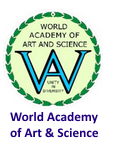
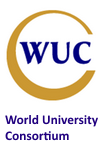
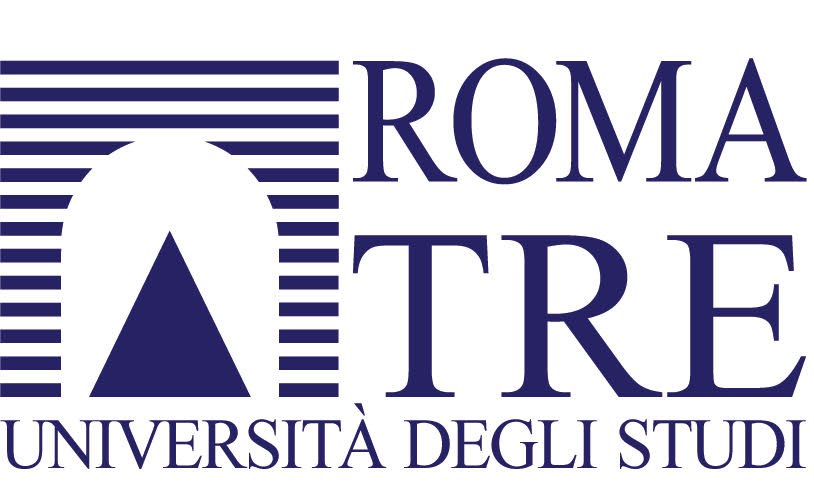
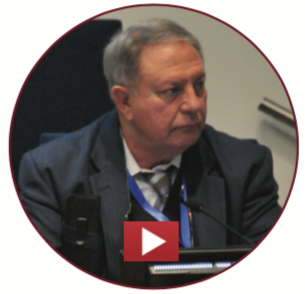
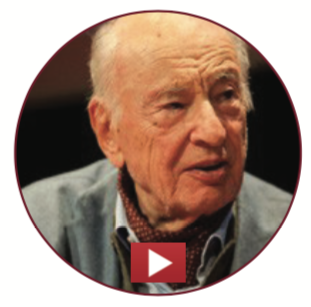

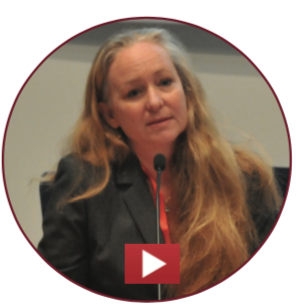
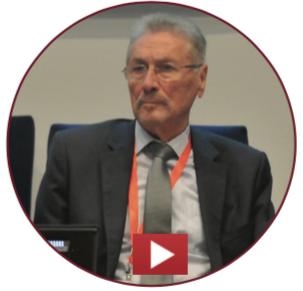
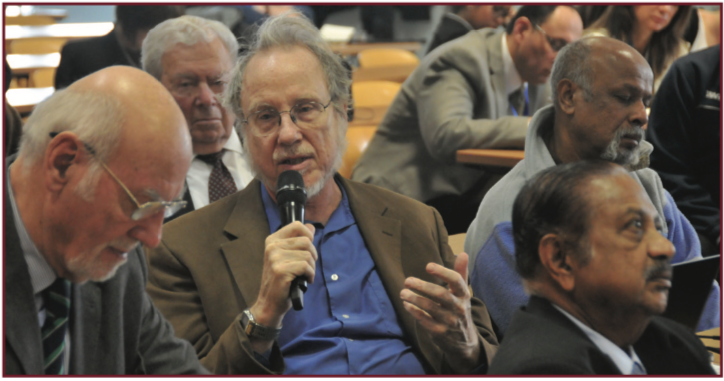

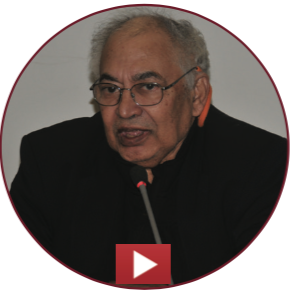
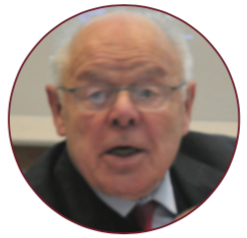
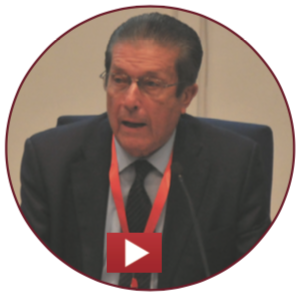
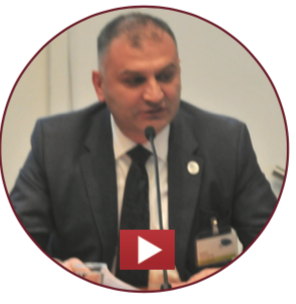
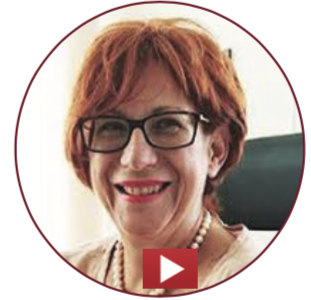
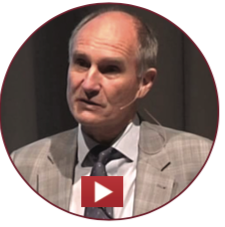
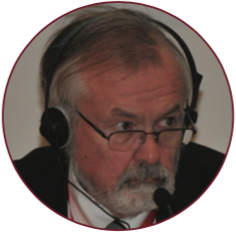
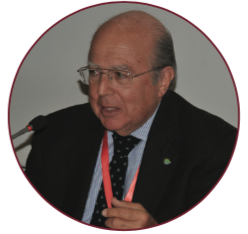
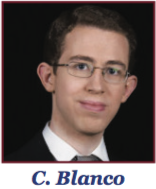
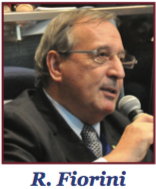
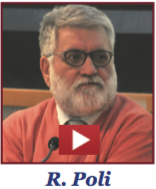
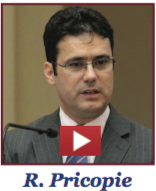
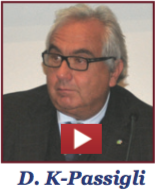
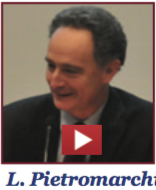
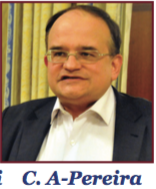

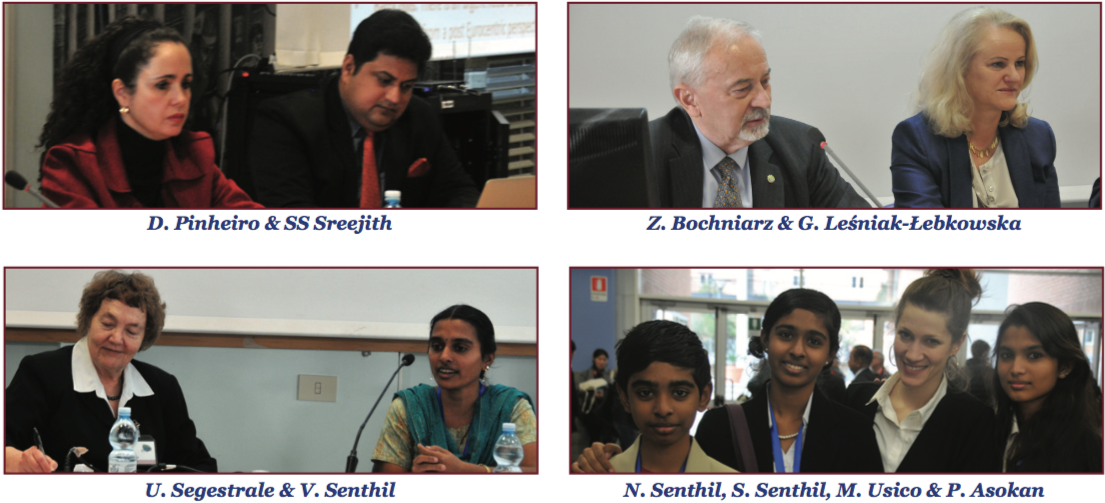
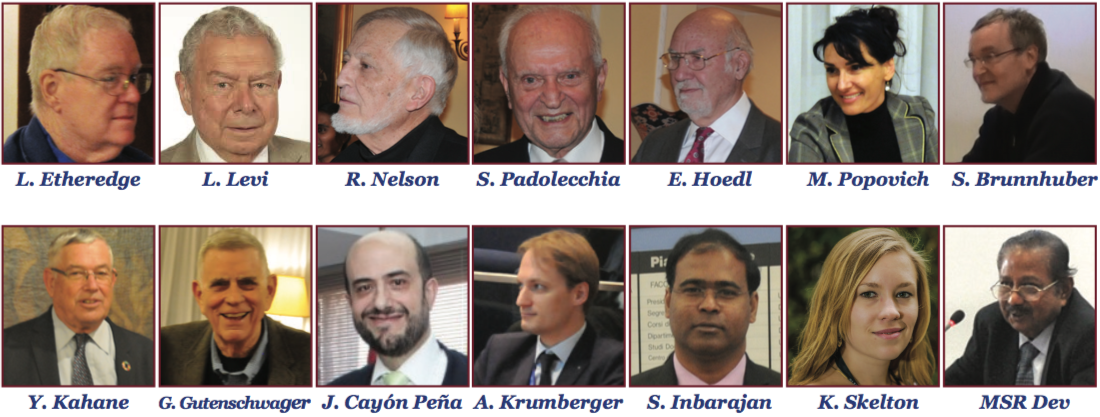
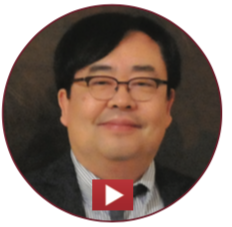
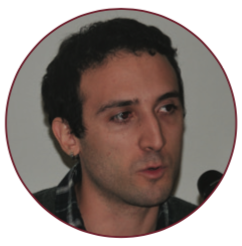
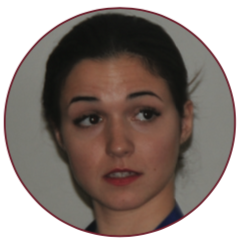

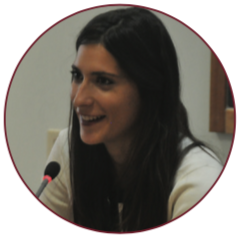 Creativity needs to be encouraged by reforming the evaluation system and by changing the notion of time and space of education; Learning should be seen as the way of living, and not limited by hours spent at the university.
Creativity needs to be encouraged by reforming the evaluation system and by changing the notion of time and space of education; Learning should be seen as the way of living, and not limited by hours spent at the university.